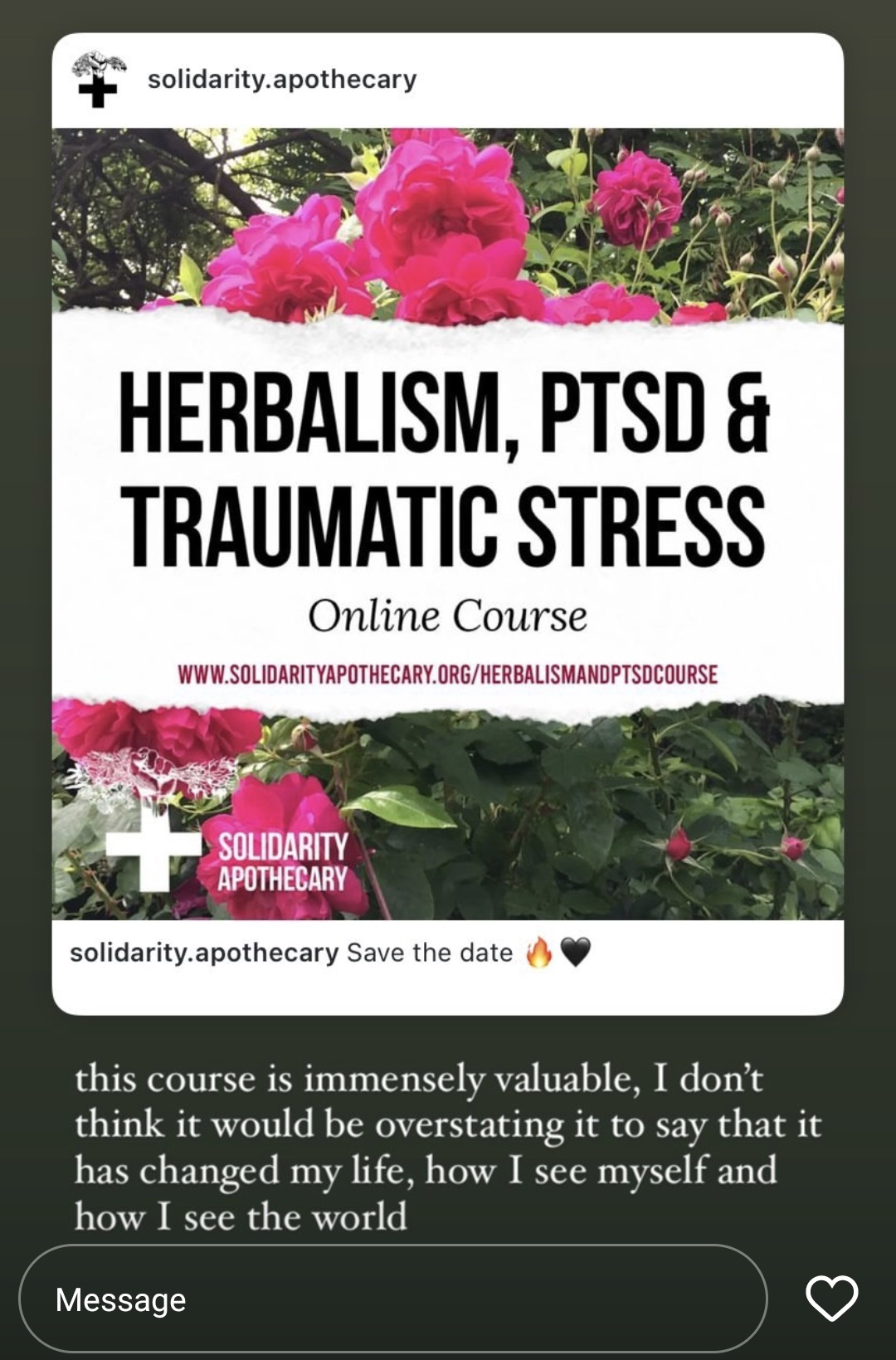Herbalism, PTSD & Traumatic Stress Course
Develop an in-depth knowledge of plant medicine, trauma and nervous system physiology, grounded in an anti-oppressive analysis.
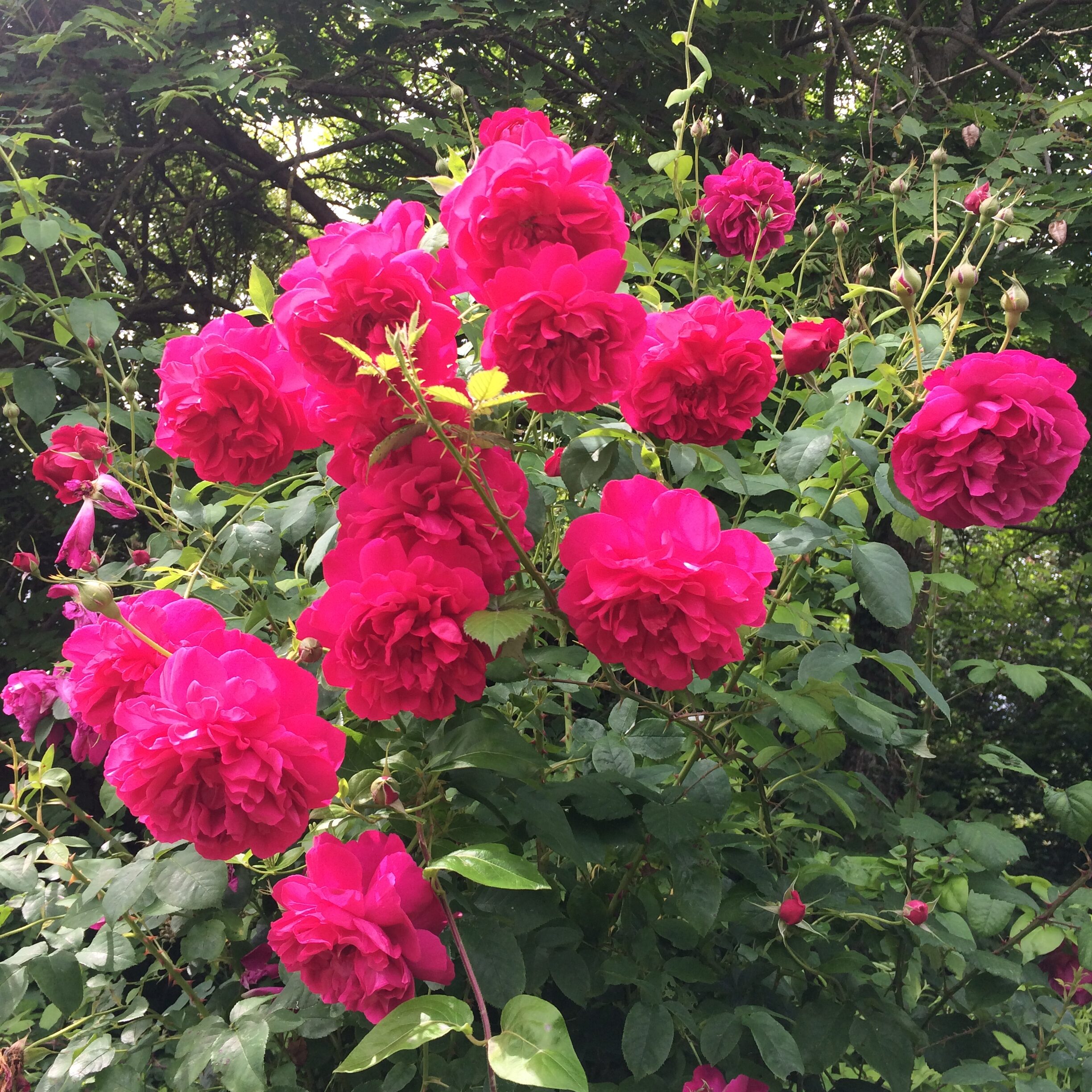
The Herbalism, PTSD (Post-Traumatic Stress Disorder), and Traumatic Stress course is an in-depth online programme consisting of eight modules that explore how herbalism can support us through distress and aid in trauma recovery.
Closed for enrolment
The course is currently closed for enrolment.
Please join the waiting list to join the course this Autumn 2025.
The course will be available to join on Monday 21st September 2025.
Sliding-scale
Sliding-scale pricing. No one turned away for lack of funds.
Zero Time Stress
You have lifetime access to all course materials, including any future updates.
Complete at your own pace for as long as you need. You can access content in any order and at your own pace.
Freedom for your learning style
The course includes:
- Video lessons
- Downloadable slides
- Downloadable audio files
- Resource lists for deeper learning
Zero Disclosure Pressure
No triggering group calls with strangers discussing deeply sensitive life experiences.
No Exhausting Information Overwhelm
No forums, messages or overwhelming information to keep up with. Study when you have the headspace, energy and desire.

What's Inside the Herbalism, PTSD & Traumatic Stress Course
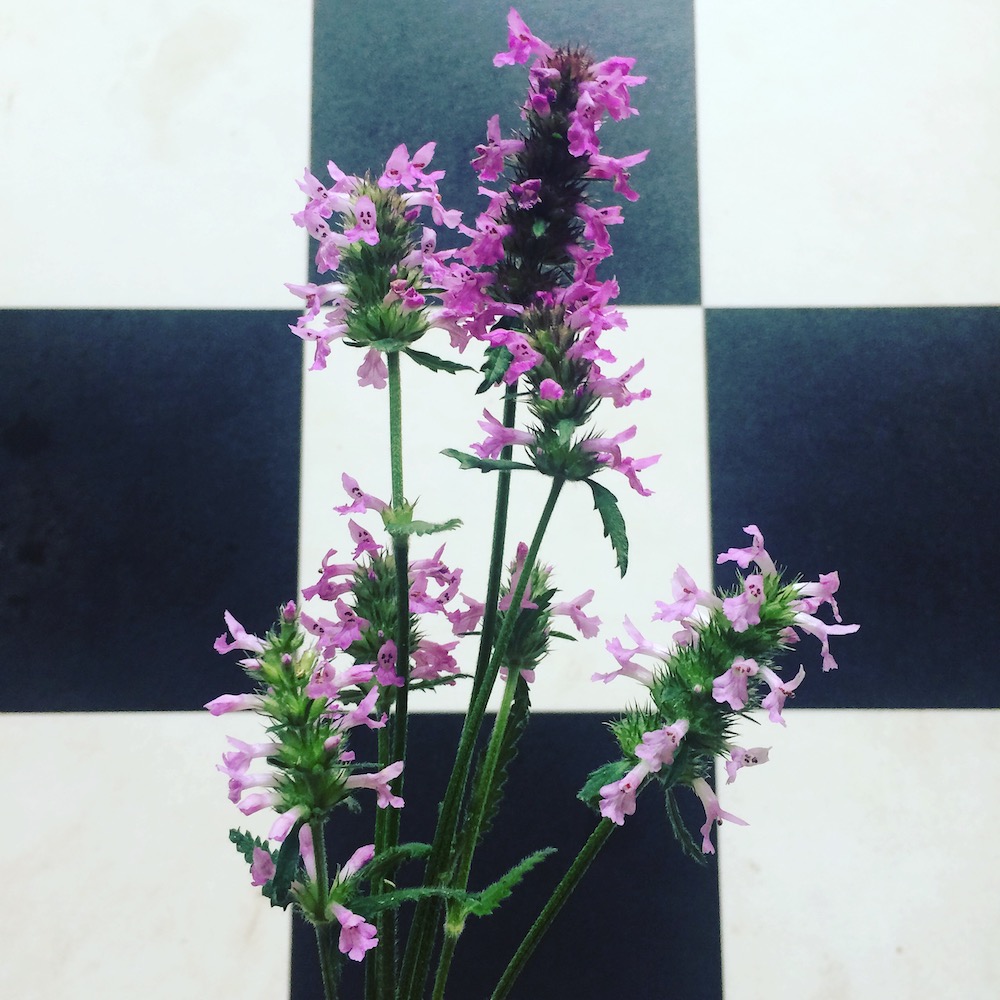
Module 1: What is Trauma?
This module explores the question ‘What is trauma?’. We look at the reductionist ways trauma is commonly framed - that it’s a result of faulty brain chemistry, that we are sick, insane or ‘mad’. We explore trauma as part of the world around us that shapes us - from racism to ecological destruction. We dive into common trauma dynamics such as lack of safety and support, powerlessness and dysregulation.
Lessons include:
- What is trauma?
- How trauma is framed in the Global North
- Exploring liberating ways of framing trauma
- Common trauma dynamics
Module 2: Herbal Foundations
In this module, we look at important herbal safety information, ways to work with plants (medicine making, foraging, journaling and more), and the many incredible medicinal actions of plants. We introduce a framework for looking at constitutions, tissue states and energetics. We also look at the role of plants in the essential foundations for health - sleep, movement, digestion and nutrition.
Lessons include:
- Starting or deepening your journey with plants
- Herbal Safety
- Understanding herbal actions
- Constitutions, tissue states and energetics
- Essential foundations for health
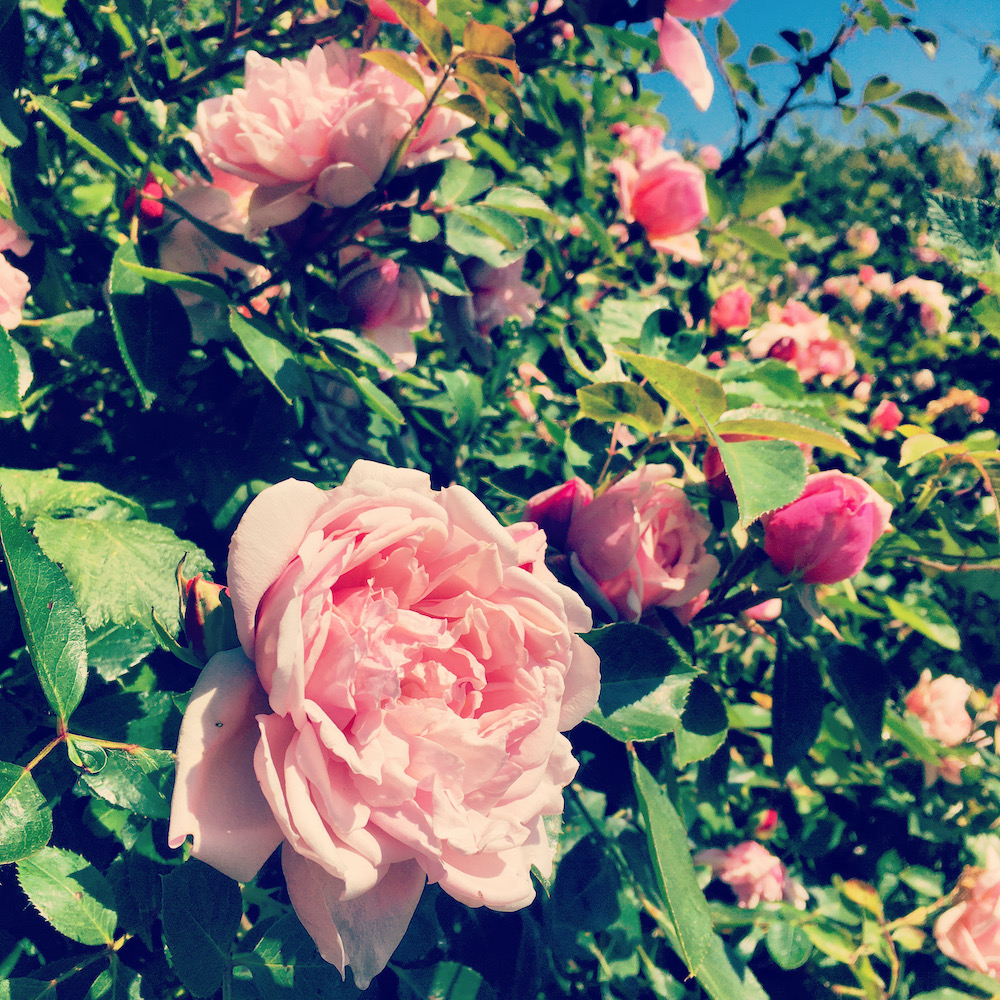
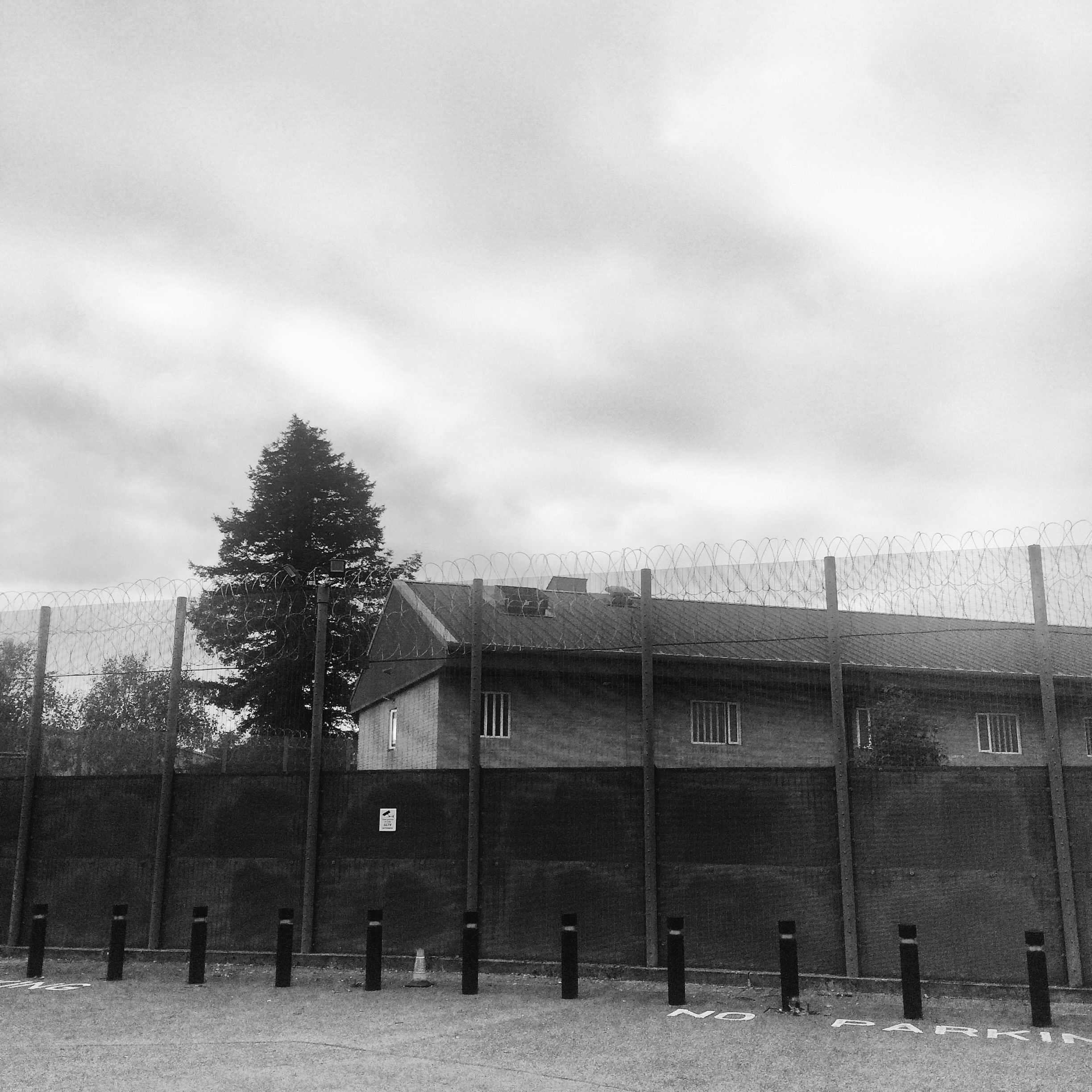
Module 3: How Trauma shapes the Body
There are 8 billion people on this planet and 8 billion ways in which people experience and process trauma. Our bodies express distress in multiple ways, which are different for all of us. This module explores common trauma symptoms and the ways that trauma can impact our bodies - from triggers and flashbacks to autoimmune conditions and chronic inflammation.
Lessons include:
- How trauma shapes the body
- How the body expresses distress
- Trauma, chronic illness and inflammation
Module 4: How we can shape it back
In this module, we take a deep look into understanding nervous system physiology. We look at different frameworks for describing states of being, such as polyvagal theory - a framework for understanding how the autonomic nervous system has evolved to keep us safe and alive. We introduce the roles of plant medicines in shifting how we feel and explore some of the goals we can aspire to in healing and feeling differently.
Lessons include:
- Nervous System Deep Dive
- Polyvagal Theory
- Healing goals
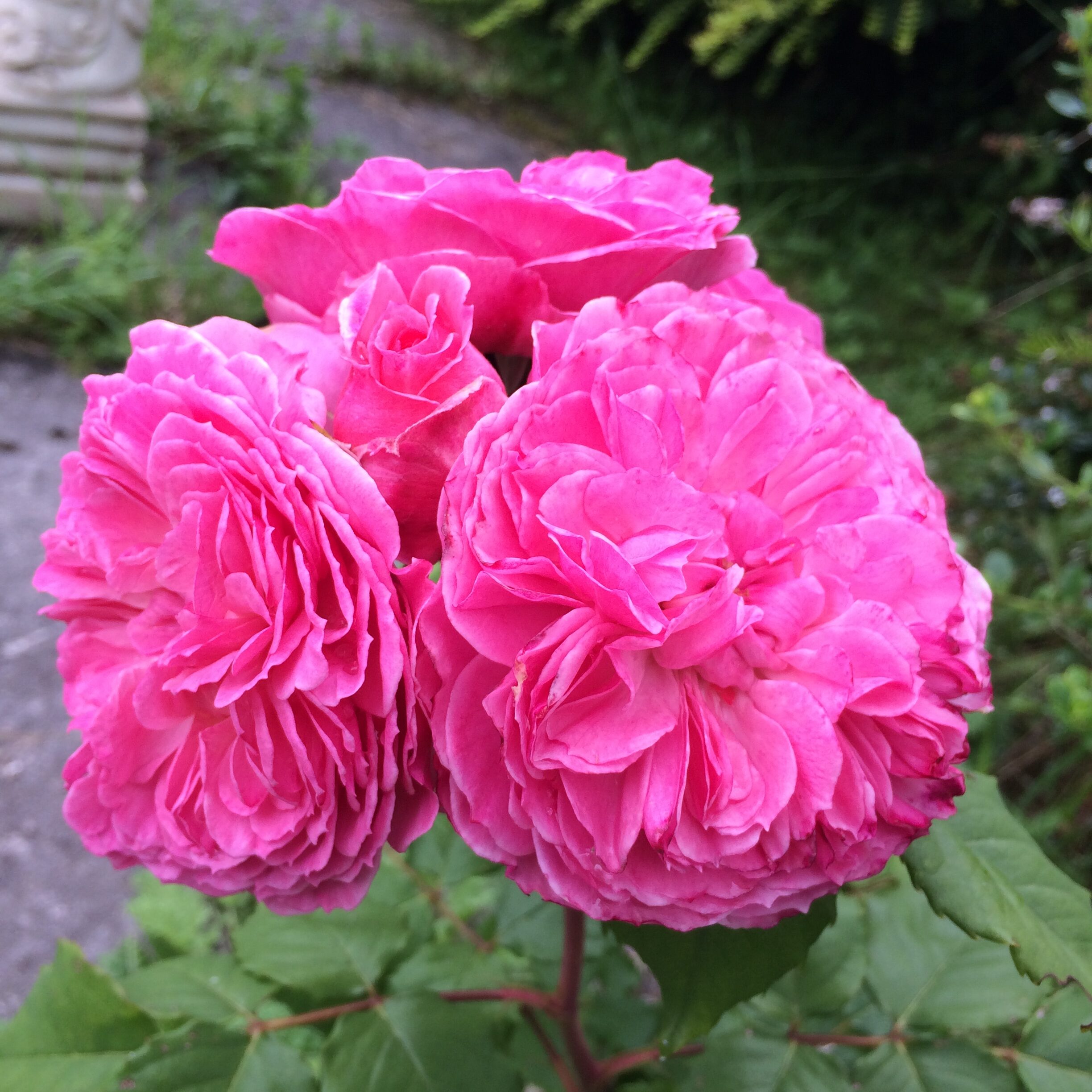
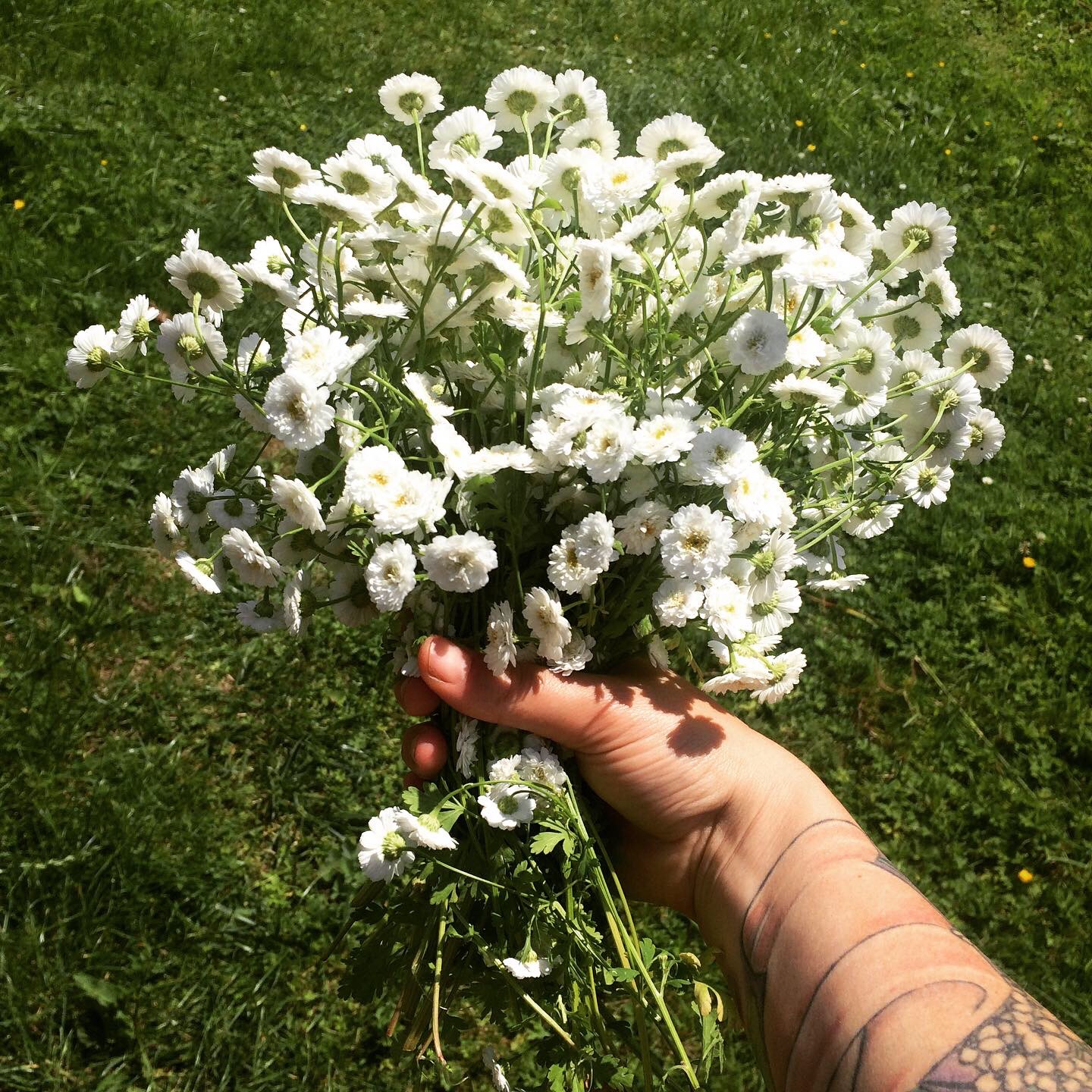
Module 5: Collective Responses to Traumatic Stress
This module introduces a framework exploring radical responses to traumatic stress. We look at the many individual and collective practices that can aid trauma recovery. Plant medicines are one tool in the toolbox - in this module we look at their role in each of these necessary stages to help explore the diverse role of plant medicines in trauma recovery.
Lessons include:
- Deconstructing ‘trauma recovery’ and introducing the radical trauma response framework
- Release
- Rest and renew
- Reconnect
- Resistance
Module 6: Nervines Deep Dive
We begin our series of lessons taking a deep dive into nervines - plant medicines that have an affinity with the nervous system. We introduce herbs which enable our body to feel calmer and grounded, prepare us for sleep and allow us to move into a more parasympathetic (rest and digest) state. We also look at nervine tonics - herbs which act to tonify, strengthen, and restore the proper structure and function of the nervous system. They are a key tool in enduring and recovering from traumatic stress.
Lessons include:
- Working with nervines
- Relaxant nervines deep dive
- Nervine tonics deep dive

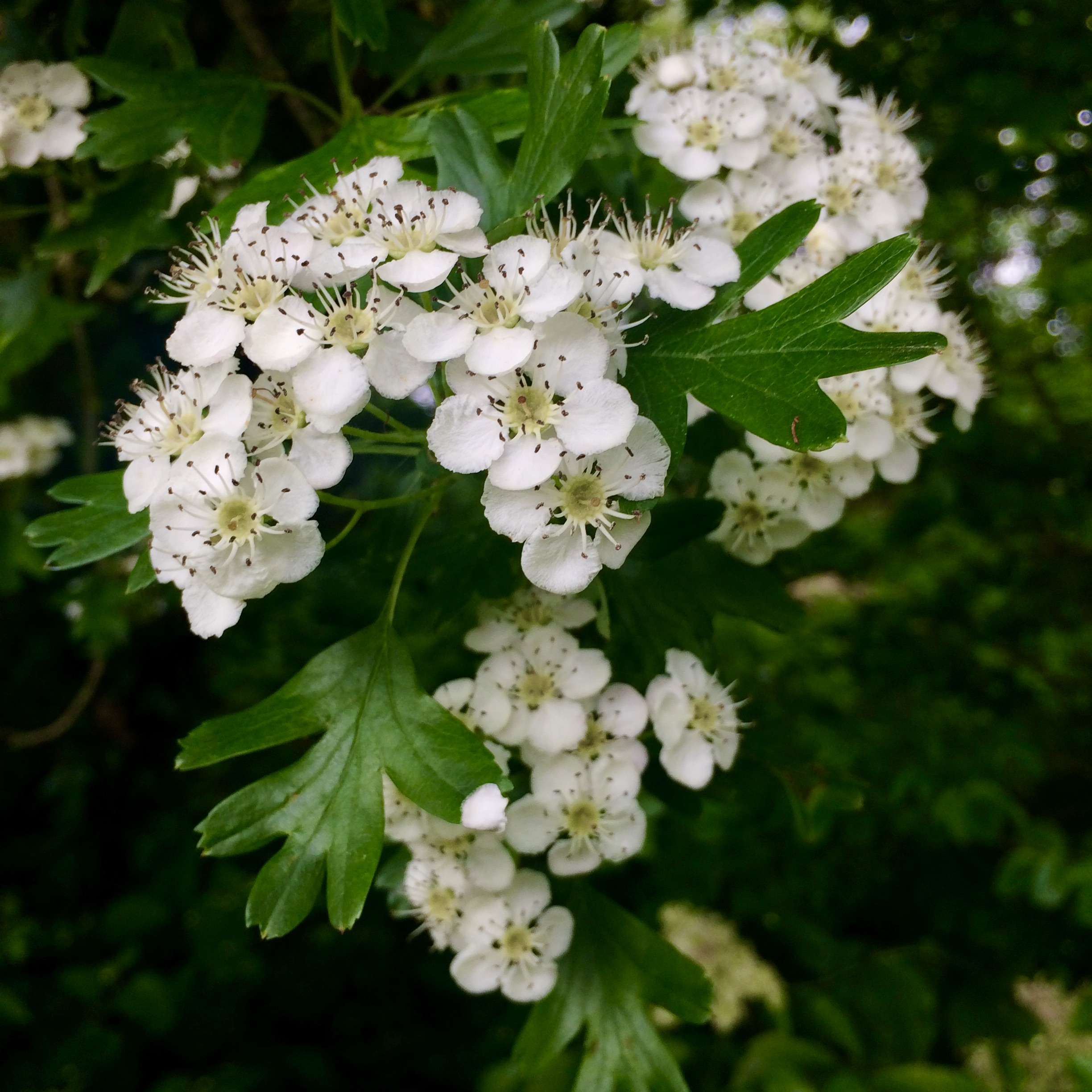
Module 7: Nervines Deep Dive, Part Two
In this module we explore some of the more ‘hypnotic’ and sedative nervines that can help to induce a stronger relaxant effect and a deep and healing state of sleep. We also take a deep dive into cardiac nervines that have an affinity with the heart and cardiovascular system. Finally, we cautiously explore stimulating nervines that can be indicated in some cases which have a direct stimulatory effect on the nervous system.
Lessons include:
- Hypnotic nervines
- Cardiac nervines
- Stimulating nervines
Module 8: Practically working with Plant Medicines
This module introduces many of the incredible ways we can make medicine with plants and includes how-to guides for making tinctures, glycerites and infused oils. You will learn how to harvest herbs and make potent medicine for yourself safely, effectively and sustainably. This module also explores case studies of the ways that plant medicines have supported people with PTSD and traumatic stress in their lives, giving us a clearer idea of effective ways to support ourselves with plant medicines over time. You will make an implementation plan for yourself and identify clear next steps to put the programme into practice.
Lessons include:
- Working with plant medicines in practice
- Harvesting herbs
- Introduction to medicine making
- Case studies
- Your implementation plan
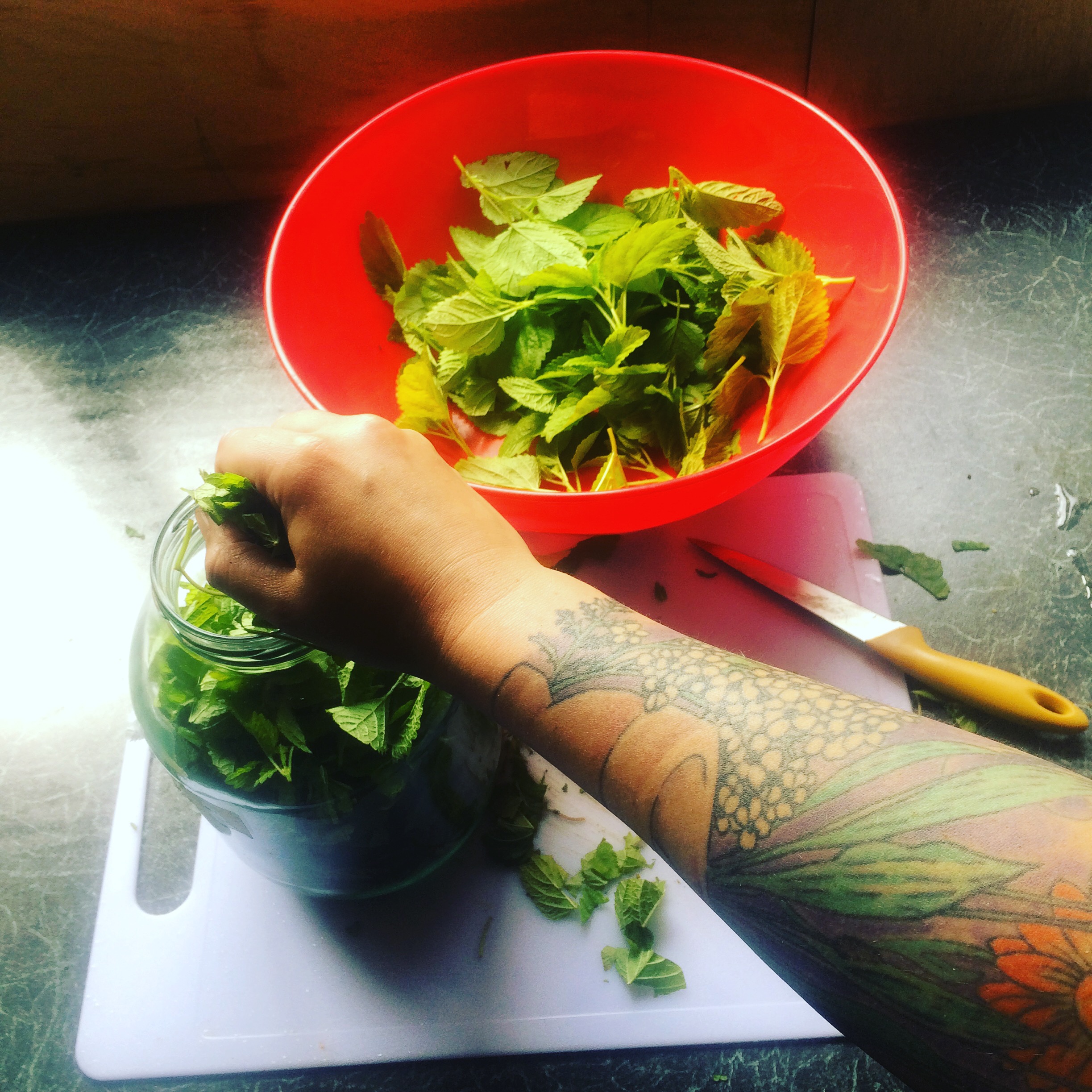
"This course was incredible. I learned sooo much about myself & my brain (despite having PTSD my *entire life*, and being in therapy on and off for decades) as well as I did herbalism and supporting all the folks like me. Nicole has written a love letter to the suffering, and covered it in rose petals. I cannot recommend it enough."

This course is for you if....
You’re seeking relief from the relentless rollercoaster of PTSD and traumatic stress
- You feel stuck in survival mode—whether that’s anxiety, hypervigilance, emotional shutdown, or exhaustion.
- Panic attacks, nightmares, flashbacks, insomnia, anger, digestive issues, headaches, brain fog, frequent infections, and muscle pain are all too familiar. Your body is expressing distress, and you’re desperate to feel different.
- Triggers feel constant, and finding a sense of peace or control seems impossible.
- You’re frustrated by PTSD resources that treat trauma as something in the past when you’re dealing with the reality of it right now.
- You feel disconnected—from your body, from support systems, and from the land.
- People talk about “collective care,” but right now, that feels like a fantasy when you feel so isolated.
- You’re curious about herbal medicine but overwhelmed by wellness culture that ignores class, poverty, trauma, and oppression.
- You’re struggling with chronic illness, sensing trauma plays a role but unsure where to even begin.
- Grief and loss haunt you, alternating with an unsettling numbness.
- You want to learn about trauma but can’t face another group chat, forum, or live session where people just don’t get it.
- You need a self-paced space—one where you can explore trauma on your own terms, in your own body, without external opinions or judgment.
You want to show up for others experiencing trauma
- You can see the world isn’t becoming any less traumatising.
- You do your best to organise support in the face of massive threats—from rising fascism to ecosystem collapse—but it’s exhausting.
- You want to feel resourced and prepared because you know understanding trauma is essential for navigating the years ahead.
- You care deeply about liberation, but collective organising has left you drained.
- Your friends, comrades, and loved ones are wrecked—anxiety, chronic stress, poor sleep, and burnout are everywhere—yet you feel powerless to help.
- You want to understand how trauma actually affects people and how to help them find a way out of the PTSD maze.
- You think herbalism is cool as f**k, but you couldn’t tell a dandelion from a daisy. You need structured support to build the plant knowledge you’ve always craved.
- Or, you’re a practising herbalist—deeply knowledgeable about plants but never taught about trauma, even though it affects so many of your clients. You want to show up for them in a deeper way.
- You’re a trauma practitioner, fluent in the language of trauma, and curious about how herbalism can make a real difference. You sense that studying herbalism could nourish both you and the people you support.
- You feel the plants calling you.

Transform your life with Plant Medicines
Develop a Personal Plant Medicine Practice
Learn to create your own herbal remedies for nervous system support. From tinctures and teas to oils and glycerites, you'll master practical skills to build a personalised herbal medicine cabinet that can support you through a lifetime of experiences.
You'll gain confidence in safely harvesting, preparing, and working with plants that can help regulate your nervous system.
Understand Trauma Through a Liberation Lens
Move beyond reductionist views of trauma as merely "faulty brain chemistry." Explore how systemic oppression shapes our bodies and nervous systems, while learning empowering frameworks that honor your experiences.
You'll gain a deep understanding of how trauma manifests physically—from sleep disruption to chronic inflammation—and how plants can support healing on multiple levels.
Learn the Language of the Nervous System
You’ll develop an in-depth knowledge of nervous system physiology and nervous system states that can help make sense of how you are feeling and enable you to choose the plant medicines your body would be strengthened by.
Being able to understand, describe and communicate to others how we are feeling can be truly revolutionary.
Skillfully Navigate Nervines
Gain in-depth knowledge of nervine herbs—plants that specifically support the nervous system.
Learn which herbs can help with different manifestations of traumatic stress, from anxiety and sleeplessness to emotional flooding and dissociation.
You'll learn how to match specific plants to your unique constitution and needs.
Build Life-changing Relationships with Plants
Discover how the more-than-human world can offer connection and stability when you've had your trust in humans shattered.
Learn to develop long-term, reciprocal relationships with plants that go beyond just taking remedies. Through foraging, growing, and medicine-making practices, you'll create meaningful connections that support you through life's challenges. With plants, you are never alone.
Develop herbal resilience for collective liberation
In a world full of injustice and oppression that can be deeply traumatising, we need plant medicines more than ever.
Connect with plant medicine traditions that have supported human healing for generations. Learn how these time-tested practices can help us navigate contemporary struggles—from climate change to state violence. You'll discover how plants can help us build resilience while working toward collective liberation.

"The Herbalism and PTSD course by Nicole and Solidarity Apothecary has absolutely changed my life for the better and shifted my perspective on so much"
How much does the course cost?
Solidarity Price
£0 . 00
- Refugees, asylum seekers & people without papers
- Former prisoners & detainees
- Low-income prisoner & detainee family members
- Low-income organisers experiencing state repression
- Anyone in financial distress unable to meet their basic needs
Standard Price
£225 . 00
£45 x 5 months
- For people in employment or with a steady income
- For people able to meet their basic needs and afford extras (holidays, takeaways etc.)
- For people with some savings and safety net
Resourced Price
£375 . 00
or £75 x 5 months
- For people with access to unearned generational wealth e.g. trust funds, family allowances, living off inheritance
- For people who own a house or own more than one property/are a landlord
- For people with larger than average savings/pensions/investments beyond your daily cost of living
- Being a middle to high earner in terms of work/waged labour
Why a sliding-scale?
This course offers three different packages designed to accommodate different levels of financial resources and acknowledge the impact of systemic oppression. While the detailed packages are outlined above, the core principle is simple: people on low-incomes pay less and financially-resourced people pay more. This approach represents an (imperfect) way to create a more economically liberating model while we work to create different economic systems.
Understanding class and its intersections is crucial. It is inseparable from other forms of oppression (racism, sexism, transphobia, ableism, etc). People's situations are complex and rarely fit into neat categories or sliding scales. In our capitalist society, which generates and perpetuates a feeling of scarcity, this manifests differently for different people - for many, scarcity is acutely real (e.g. poverty), for others it is an emotional feeling of instability and fear that is equally real. Studies have shown that even millionaires feel that they do not have 'enough'. This complexity in our relationship with money makes implementing a sliding scale challenging, highlighting why it is important to integrate an analysis of systemic oppression and class rather than an emotional feeling of what you can afford.
When enrolling, you'll find different payment options at checkout, including the ability to spread payments across three or five months. You can also choose to make a donation of what you can afford (including nothing). In alignment with my anti-capitalist principles, no one is turned away for lack of funds.
Thank you for caring about liberation.
About Nicole & the Solidarity Apothecary
I’m a clinical herbalist and anarchist organiser based in the West Country of England. My lineages are English, Welsh, and Irish. I have been studying herbal medicine informally for over 15 years and completed a four-year clinical training with The Plant Medicine School in Ireland to deepen my practice.
As a herbalist, I focus on supporting people experiencing state violence—most of whom live with debilitating PTSD or are surviving ongoing traumatic stress. For better or worse, prison has shaped my adult life. I’ve spent over 20 years supporting partners, friends, and comrades inside. I also served a three-and-a-half-year sentence myself following a major wave of state repression against a campaign to shut down Europe’s largest animal testing company. Throughout my sentence, plants sustained me, and years later, I wrote The Prisoner’s Herbal, a book now distributed to prisoners worldwide.
I’m also the author of Overcoming Burnout, which explores burnout recovery in the context of systemic forces—classism, sexism, poverty, chronic illness, ableism, and power dynamics in groups. The book centres collective care and mutual aid as essential parts of healing.
In addition, I wrote Herbalism and State Violence, a book examining how herbal medicine can be used as a tool of resistance and survival for those impacted by policing, incarceration, and repression. It explores the ways state violence affects the body and how plant medicine can support people navigating its physical and emotional toll.
Why do I do this work?
In 2016, I got sick—really sick. My life became a blur of NHS appointments, fear, and confusion. Accessing alternative healthcare, including herbalists, was a constant financial struggle that delayed my recovery. When I did manage to see practitioners, the experience often felt so alienating as a working-class person raised by a single mum. It seemed like they couldn’t comprehend what I’d been through—state repression, abuse, sexual violence, poverty, and incarceration. It felt like we were on different planets.
It took me years to fully understand how traumatic stress shapes the body and to find my own way through a complex PTSD diagnosis. As I developed my practice, I kept wishing there was an accessible online resource I could share—something to help people make sense of their distress and see that change is possible.
I believe people deserve direct access to this knowledge—about their own bodies, about plant medicines, about how to make medicine themselves. So I created this course.
Plants have kept me alive. I know they can support you too.

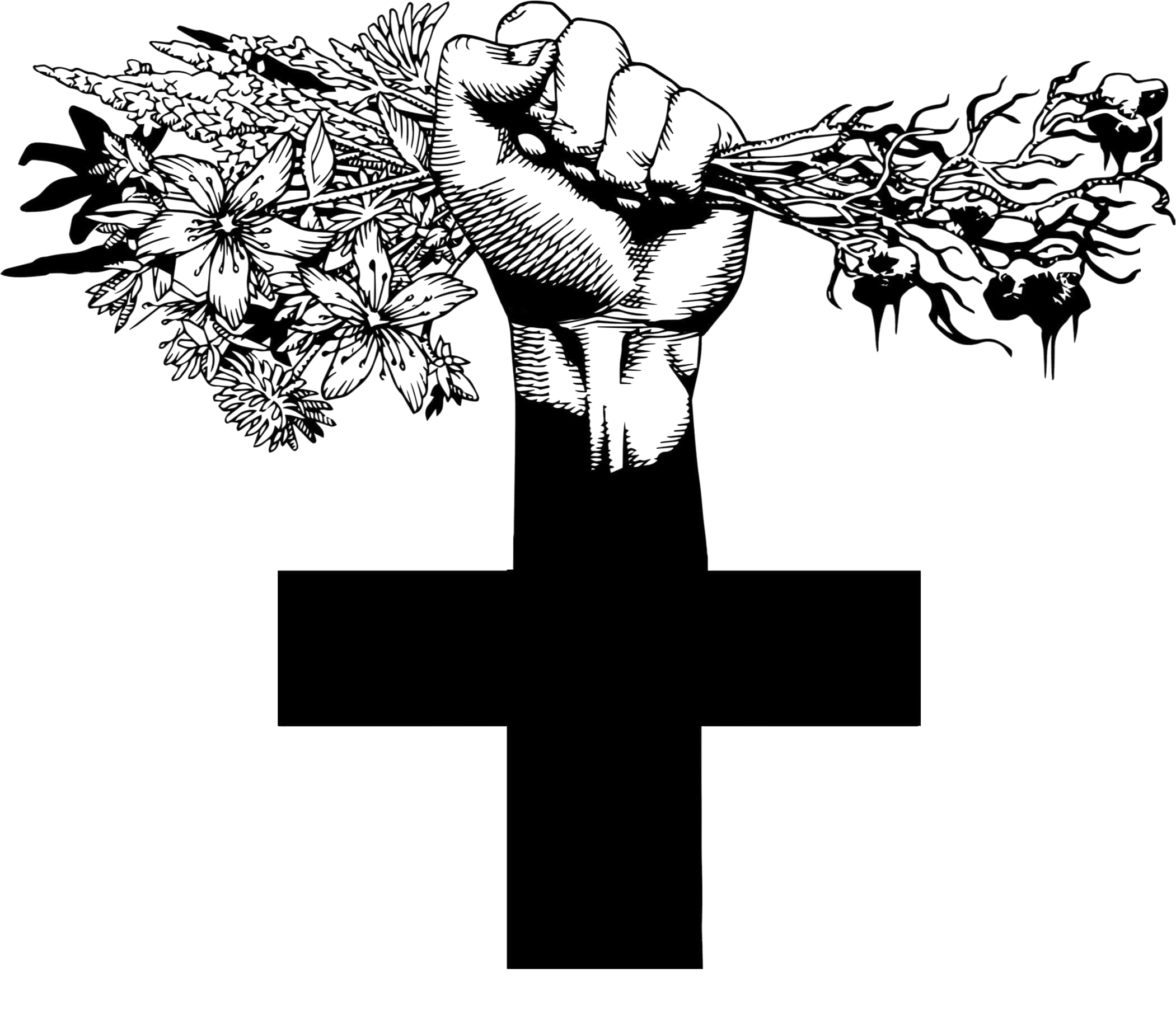
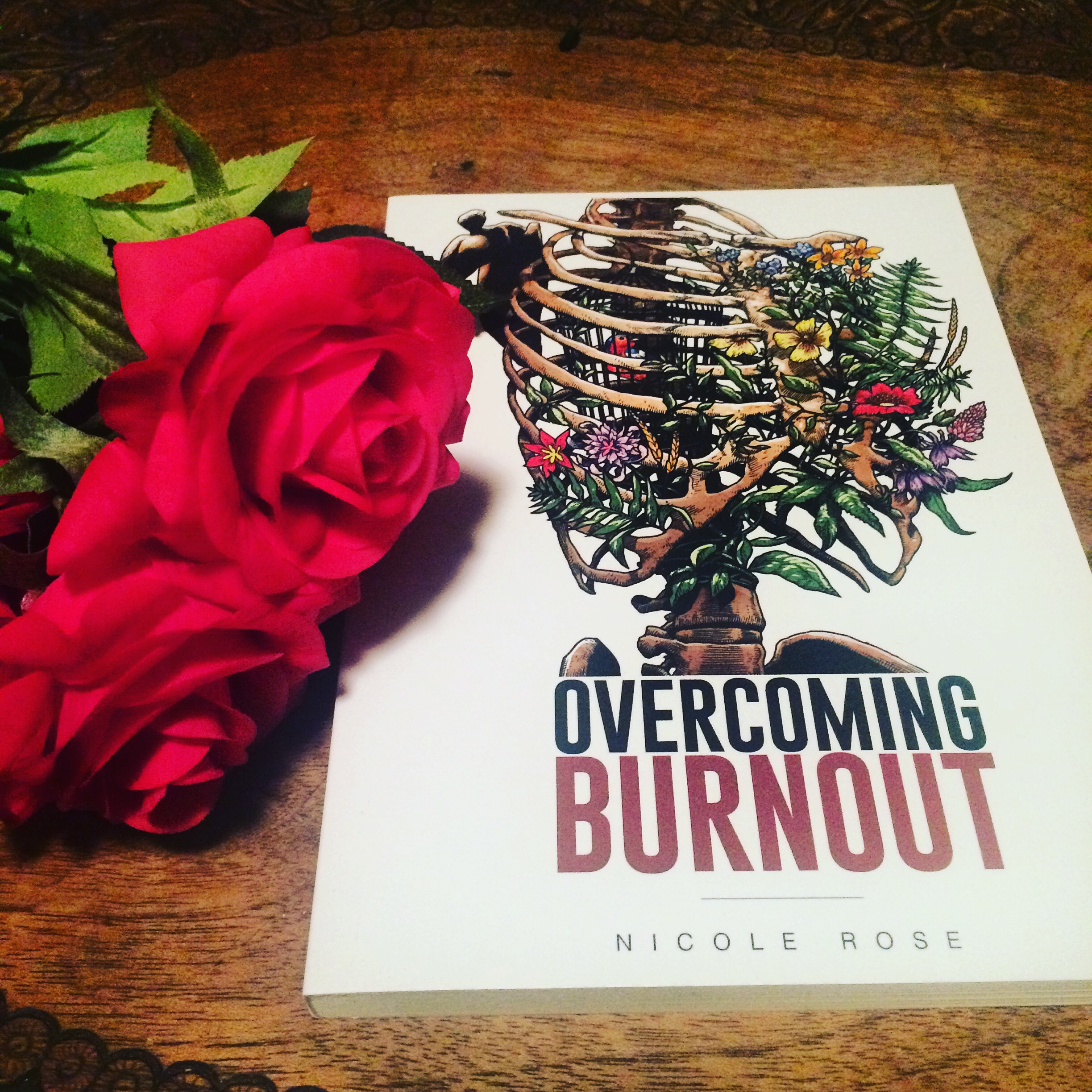
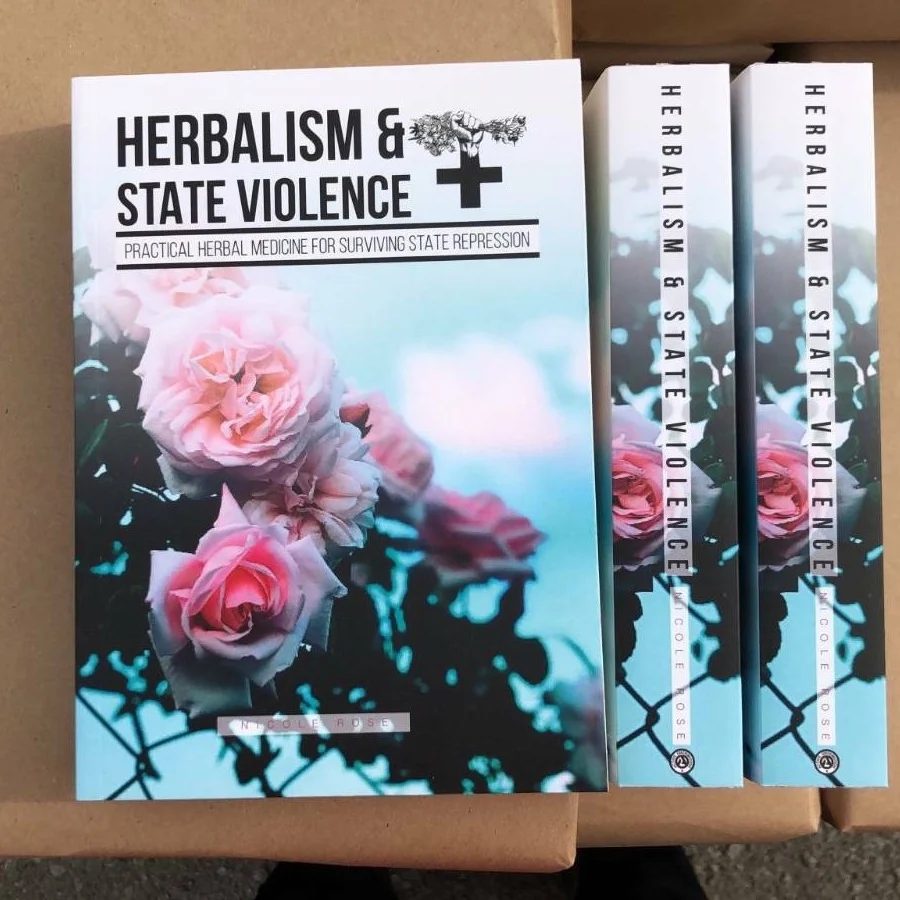
What this Course is and isn't
As someone who has lived with PTSD, I know what it’s like to be in absolute despair—so desperate for relief that I’d spend everything I had to feel even slightly different. I’ve gone into debt investing in online programmes, ‘rapid therapies’, or whatever was on offer, just hoping something would work. I never want anyone to pay for this course under false premises, so I want to be completely transparent about what it can and cannot offer.
Too many online courses and coaches promise the world for a hefty price tag. It’s one of the worst capitalist marketing tactics, and I refuse to exploit, deceive, or manipulate anyone.
What this course is not
This programme is not ‘the solution’. You’re not going to watch a few videos and suddenly be free from PTSD. As we explore in the course, trauma recovery is complex—our bodies are unique, we experience distress in different ways, and healing (which itself is an imperfect term) often requires an entire ecosystem of support. That might include, for example, therapy, dietary changes, herbal medicine, embodied practices, friendships, political organising, and more.
This course is not a replacement for therapy or any other trauma recovery approach. Nor does it provide a qualification to work as a herbalist or trauma professional. It can, however, complement any studies or work you’re already doing in these fields.
My scope of practice
I share this knowledge as a clinical herbalist. I’m not a therapist. I haven’t had the financial resources to complete lengthy trauma recovery qualifications, but I have spent thousands of hours in self-education, trying to understand how trauma shapes the body. Throughout this course, I provide detailed references and resources from trauma professionals with many letters after their names.
But my knowledge is also lived and embodied—learnt ‘in the trenches’. In prison, I worked as a listener with the Samaritans, sometimes spending over 30 hours a week with suicidal and deeply distressed women, hearing stories of unimaginable pain. For over 20 years, I’ve supported people in prison who were pushed to the limits of what humans can endure.
I’ve worked with thousands of refugees in a mobile herbal clinic, supporting those fleeing war, including many escaping the invasion of Ukraine. I’ve supported people experiencing repression, gifting medicine to families devastated by grief. I’ve worked with people healing from prison, addiction, and childhood trauma—helping them reclaim their sleep, rediscover rest, and slowly learn to inhabit what feels like a new body.
I have seen plants work their magic over and over again. And it’s with this deep confidence that I offer this course.
What this course does offer
This course is an opportunity to expand and deepen your knowledge of plant medicines. It’s an invitation to transform the way you understand trauma. I truly believe plants can and do radically change lives—bringing people into a world of pleasure, purpose, connection, and healing.
Herbs have tangible, direct effects on our bodies and have been used across every continent for thousands of years. In the words of Potawatomi author and botanist Robin Wall Kimmerer, “In some Native languages, the term for plants translates to ‘those who take care of us.’”
Plants take care of each other and their ecosystems, and they take care of us too—in prison courtyards and refugee camps, when fleeing war zones, and when working towards a world free of domination, exploitation, and oppression.
I hope they can take care of you too.
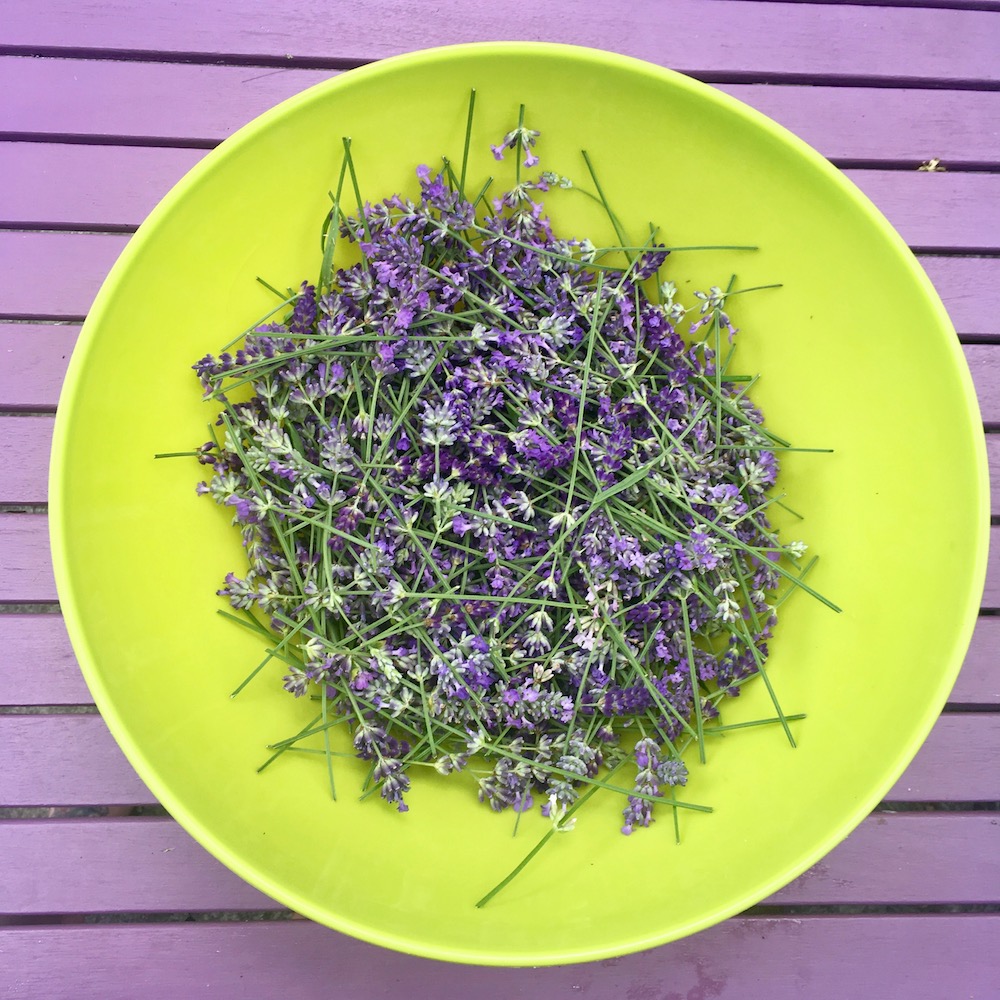
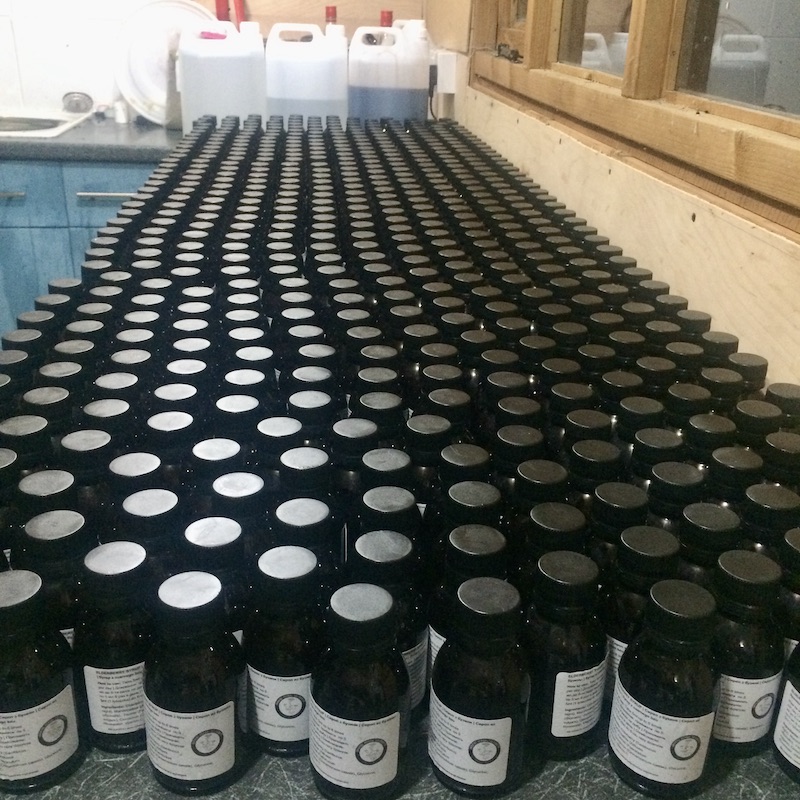
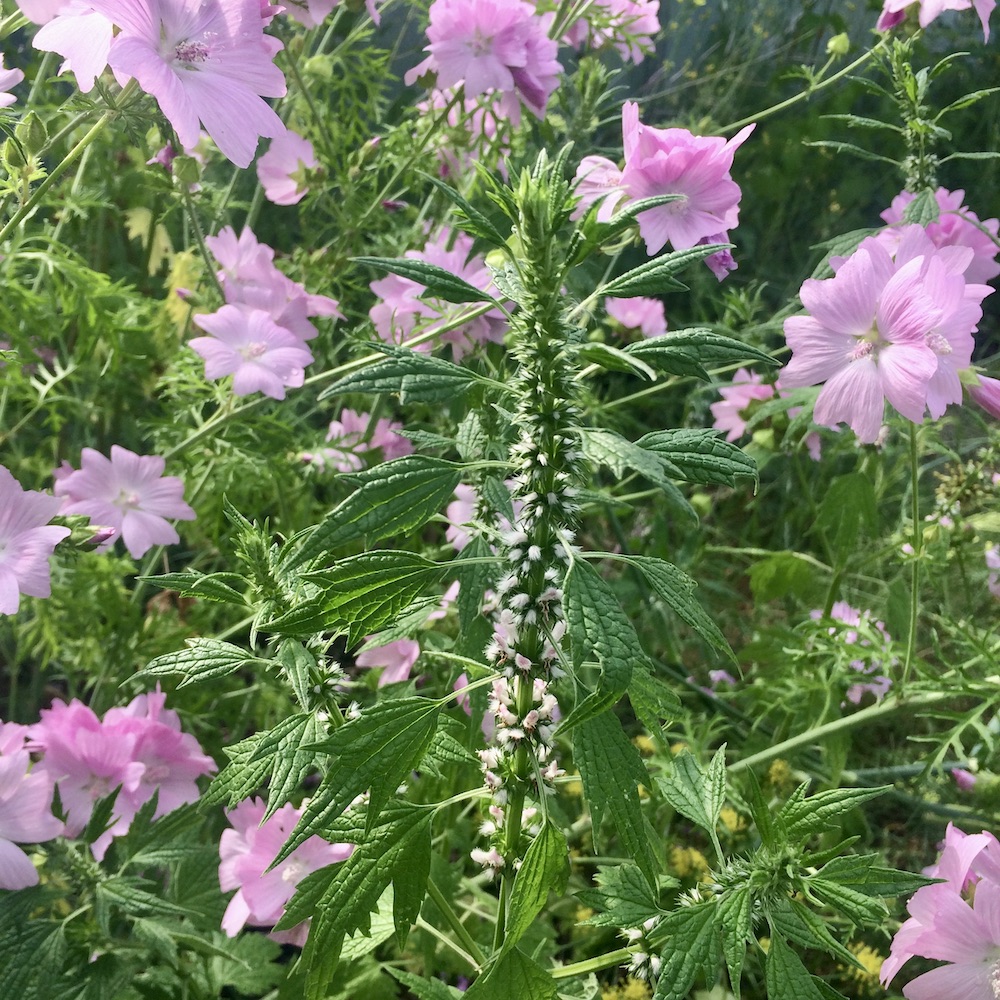
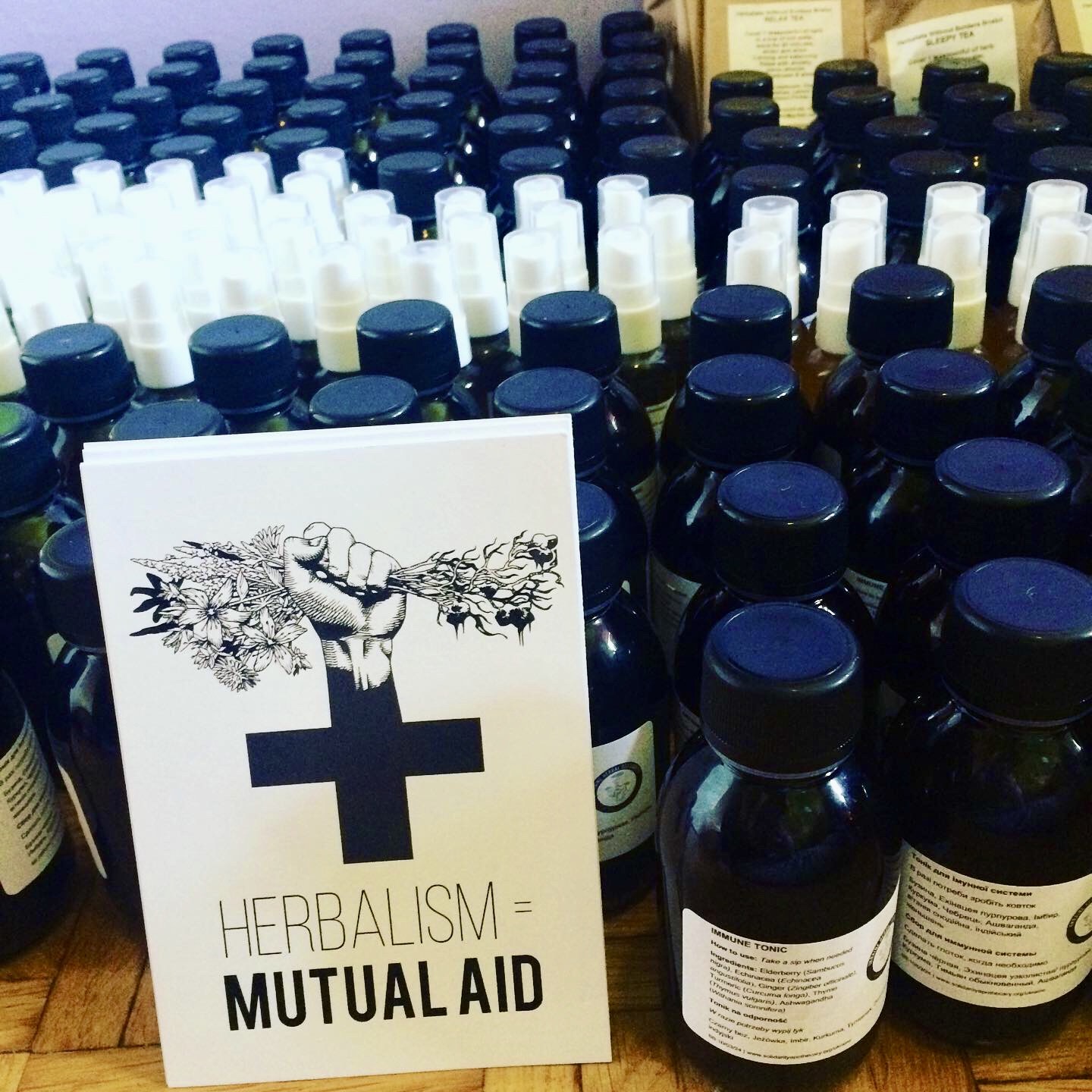
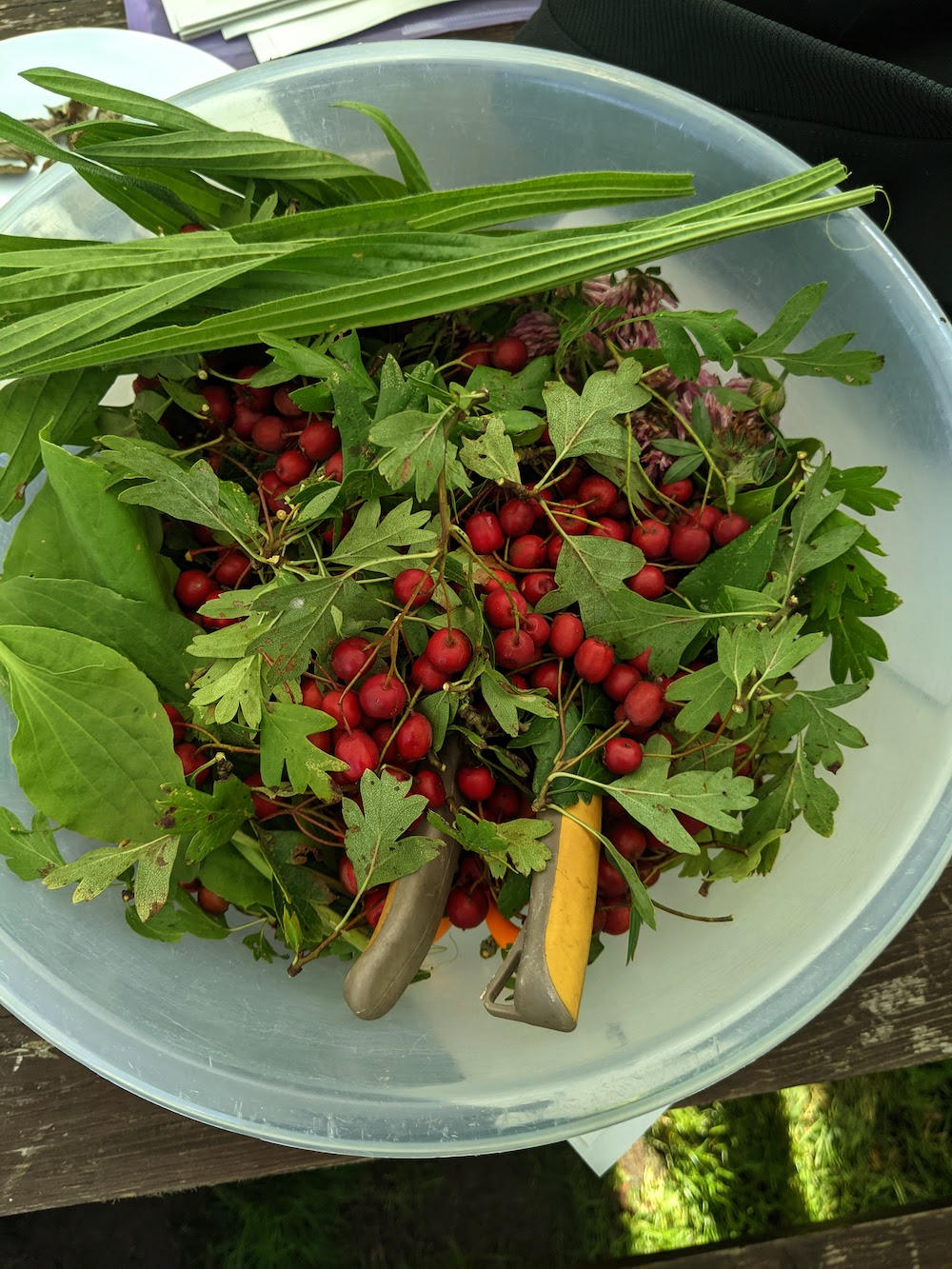

Bonuses
Waiting List Bonus!
Sign up for the waiting list at least one week before the course opens, and you'll be entered into a special lottery for a chance to win...
A Nervine Sample Kit (Five Available!)
This curated kit includes ten tinctures, glycerites, infused oils, and teas—all hand-selected to help you explore and experience these incredible herbal medicines. The ten herbs will be tailored to your preferences, chosen from the plant profiles covered in the course.
Winners will be notified via email after the course has opened for enrolment

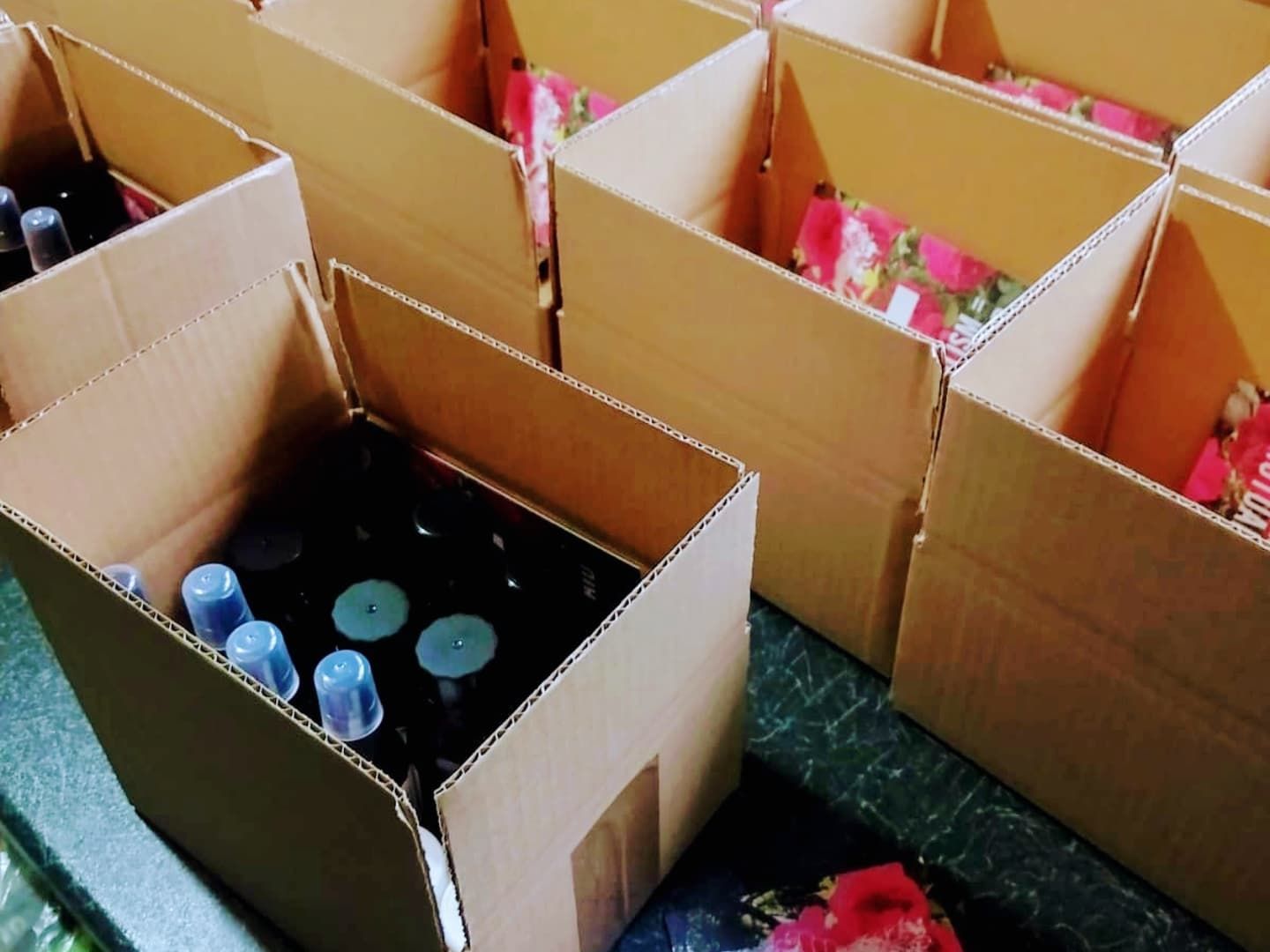
First Day Bonus!
Enroll on the very first day the course opens, and you'll be entered into a lottery to win…
A Free Spot on the Practical Herbal Medicine Making Intensive!
Join this immersive in-person course taking place over three days in Somerset, where you'll gain hands-on experience in herbal medicine making.
If you’re outside the UK, you can give your place to a friend!
Learn more about the course here: https://solidarityapothecary.org/practical-medicine-making-intensive/
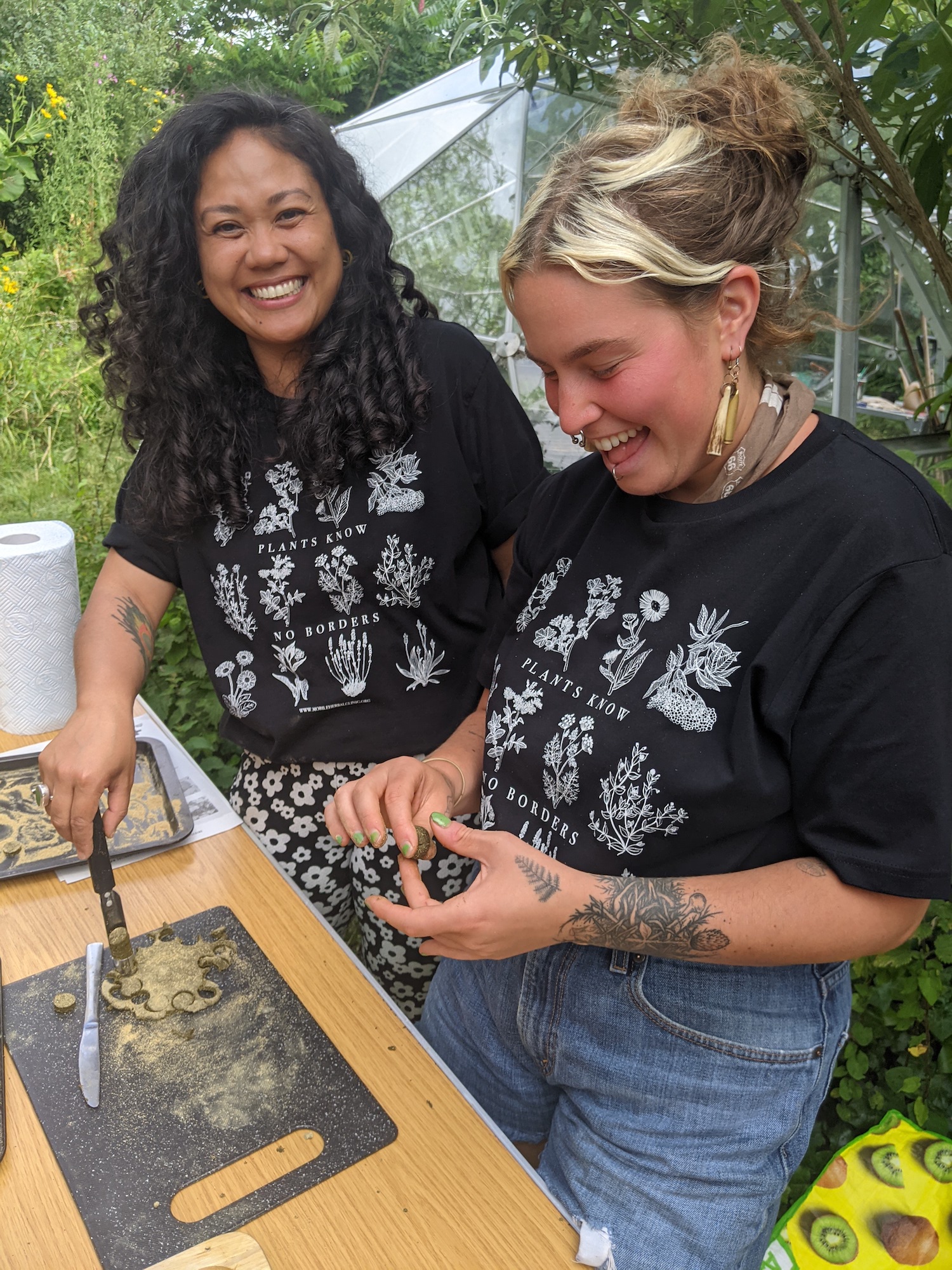
Commonly Asked Questions
How much does the course cost?
The course is offered on a sliding scale to make it as financially accessible as I can. More details on pricing, including solidarity places for those in financial distress, can be found in the "How much does the course cost?" section.How long will I have access to this course?
Participants receive lifetime access to all course materials, including any future updates. You can complete the course at your own pace and revisit the content as needed.When does the course start and finish?
The course opens for enrollment at specific times throughout the year. This allows me to be available for questions and administrative support when new participants are joining. At other times, I may be working with the mobile clinic in Calais or engaged in other frontline herbalism work.What is the structure of the course?
The course consists of eight comprehensive modules that explore how trauma shapes the body and how we can reclaim and reshape the body. The course includes 60 video lessons and 32 in-depth plant profiles and it covers topics such as nervous system physiology, herbalism, and trauma recovery.What types of learning materials are included?
The course includes video lessons, downloadable slides, audio files, and resource lists for deeper learning, catering to various learning styles.Can I get a refund if I'm unhappy?
I strongly encourage you to read through this course page in its entirety and make an informed decision about if the course is right for you at this moment in time. As an undercapitalised femme with limited financial resources, requests for refunds have a big impact. However, if you are unsatisfied with your purchase, contact me within the first fourteen days and I will give you a full refund.Do the videos have captions?
Yes! There are also transcripts available to download for every lesson.Is there a community or group component to the course?
I spent a long time talking to folks when designing the course and it was clear that people were not keen on group interactions where there was often pressure to disclose personal experiences and information overwhelm. The self-paced learning model creates spaciousness and slowness which are important for folks with overwhelmed nervous systems.I don't have PTSD, can I still do this course?
Yes! The herbs covered in this course are valuable for managing everyday stress, not just PTSD. One of the goals is to help you build a herbal medicine cabinet that supports your nervous system through life’s challenges. Additionally, the course covers essential herbalism topics, including medicine-making, herbal safety, constitutions, energetics, and tissue states, making it beneficial for anyone interested in plant medicine.I’m new to herbalism. Is this course for me?
Absolutely! The course is structured to build knowledge in layers, revisiting key concepts over time. A comprehensive glossary is included to ensure accessibility, and I’ve designed the content to be as clear and approachable as possible. If you're just starting your herbalism journey, this course will provide a strong foundation and accelerate your learning.I’m an experienced herbalist. Will I still benefit from this course?
Yes! Many herbalists discuss trauma in limited ways, if at all. Understanding trauma is crucial for supporting clients and communities holistically. This course brings together herbalism and trauma studies in a unique, in-depth way, particularly focusing on the nervous system. The "nervine deep dive" offers advanced insights into plant actions, indications, and considerations that even experienced herbalists may not have encountered in this specific context.What support is available during the course?
I am available to answer questions via email. Details on how to reach me will be included in the welcome materials.Can’t I just learn this information from a book?
You’re welcome to try! Over the past 15+ years, I’ve explored every resource I could find on this topic, piecing together knowledge from herbalism, trauma studies, and structural anti-oppression frameworks. While there are excellent books on herbalism and trauma separately, very few integrate them—especially in a way that acknowledges the larger systemic forces that contribute to trauma, rather than just focusing on individual physiology.When will the course be available again if I don’t enroll now?
The course will next be available to join on Monday 21st September 2025. To receive updates, please join my newsletter and make sure you join the course waiting list.How can I enroll in the course?
Enrollment is currently closed. Please join the waiting list to join when the course next opens this Autumn.How does the sliding scale work?
Find full details here: https://solidarityapothecary.org/ptsd-solidarity-places/Help! My card payment is not working
Please email info@solidarityapothecary.org during the enrolment window if you are having any troubles at checkout!What others have said about the course
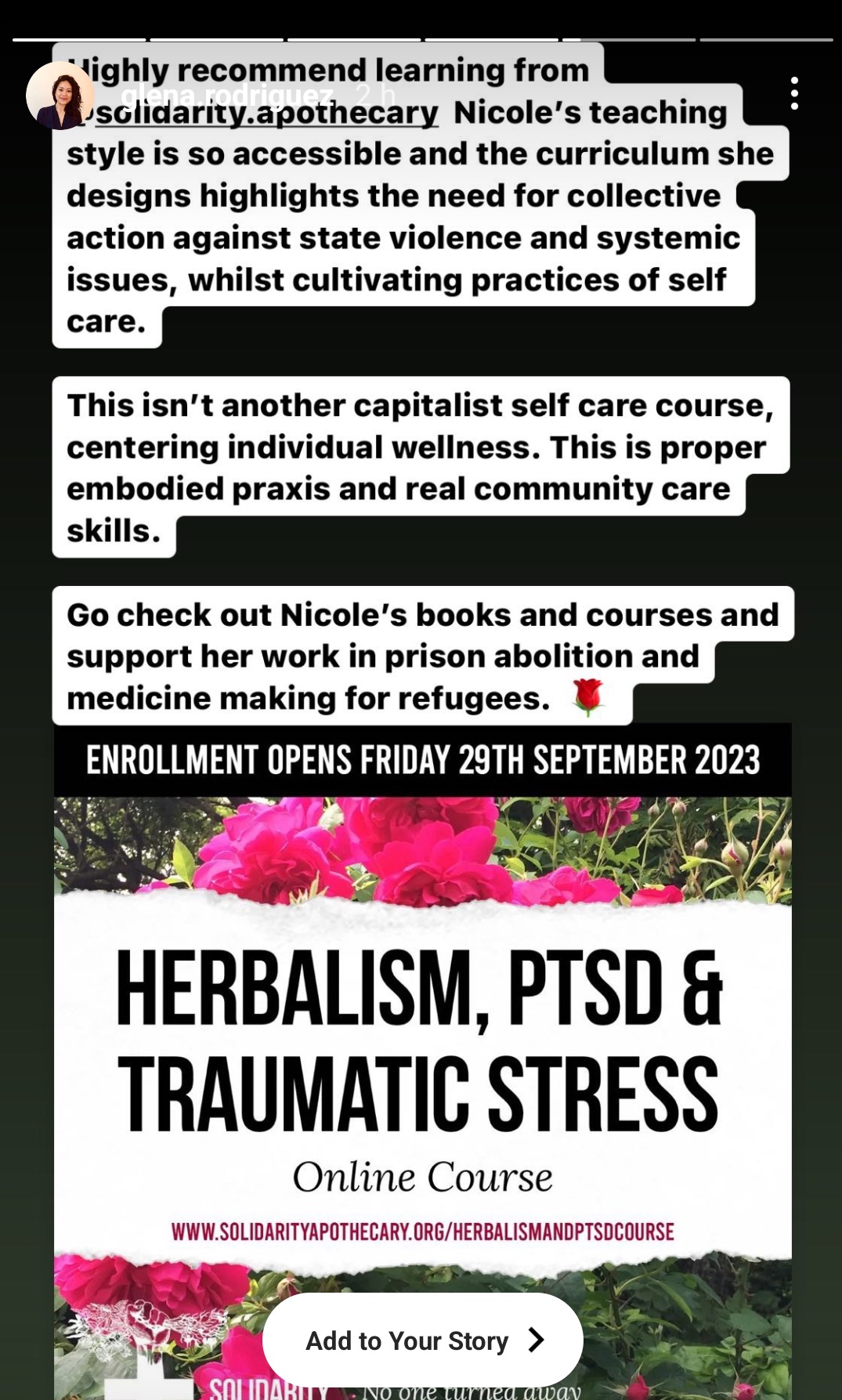
"I'd been studying herbalism for quite a while when I came across Nicole's course 'Herbalism, PTSD, and Traumatic Stress' - I can say without a doubt that she delivers a ton of helpful content, and honestly can feel the energy she poured into creating this. I have learned a lot, and with the many resources she provides, I know this information will be helpful to the clients I work with and myself.
I highly recommend the Herbalism, PTSD, and Traumatic Stress Course to anyone wanting to explore this topic."
"This course is thorough. Not only does it contain a ton of plant profiles on nervines, I’ve also learned a ton about herbalism, PTSD, and the nervous system in general—all from an anti-capitalist, anti-colonialism perspective that acknowledges the trauma of both of these things, and how we can heal from it."
"I wanted to thank Nicole for this absolutely amazing course and space. I was first introduced to her work via a podcast with Propaganda by The Seed and since have printed the Prisoner's Herbal, listened to her podcast, done the Glycerite course, and now the Herbalism, PTSD & Traumatic Stress Course.
What keeps me coming back is how much care and intention is put into each project she creates. I was looking for a space to deep dive into Herbalism without the toxicity of institutions or traditional learning spaces; Nicole provided exactly what I was looking for. I have filled a whole notebook with information and resources that I continuously come back to. I appreciate the balance of her being extremely detailed with the content while also always trying her best to keep every course as accessible and approachable as possible. I would recommend this course or any other one to any one of my friends looking to engage with plants and how we can work with them."
"This course was so helpful to me both as someone studying herbalism and personally. Nicole has such a lovely jargon free way of explaining things, there are some concepts of both herbalism and the way 0ur bodies work that I have never been able to get to grips with before that were made clear to me with this course. I really appreciate the way Nicole takes time to acknowledge different peoples experiences, include trigger warnings and acknowledgements when speaking on herbs that don't come from her lineage - which can be rare in the herbalism world.
I really recommend this course to anyone working with patients in any holistic therapy role as well as anyone looking for ways to support themselves with their own trauma."
"This course has been really important and empowering for me. Learning about trauma and how to work with nervines had changed a lot in how I understand myself and the people around me on daily basis. It is a journey that already brought me so much. As a person with ADHD this worked perfect for me, being able to choose my own moments to learn while knowing I can always send an email if something is unclear! I would recommend this course!!"
"There are courses you know you need to take and this is one of those. As someone with PTSD & someone who looks to help people move through pain, I found this course invaluable. It has given me new ways to explore my herby friends!"
"I'm finding the course both fascinating and confronting. It's perfect. Thanks for putting together such an epic piece of herbal teaching."
"I'm only part way through this course, but so far it has been good. I appreciate how Nicole has pulled together the information about how trauma affects our bodies and the emphasis she places on how we can do something to help ourselves instead of merely being trapped in the disaster that's left behind. Her suggestions of how to connect with plants are inspiring!"
"I signed up for this course because I work with people who are unhoused, underhoused, or in vulnerable situations and I couldn't find any information on how to approach care from a herbalist perspective. I have been following Nicole's work for years, she is my go to for anything relating to plant medicine. Her years of experience and intersectional approach make her perspective very unique. The language is always very accessible and I appreciate the ability to take her courses at my own pace.
I would highly recommend this course for anyone interested in community, care, intersectionality, and herbalism. I learn so much from every sentence Nicole writes."
"The Herbalism and PTSD course has really broadened and deepened my knowledge of herbs and herbalism. I was only anticipating to learn about specific herbs that help with trauma but Nicole goes far beyond just that, sharing tons of knowledge such as about how herbs interact with bodies differently through tissue states, and much more. If, like me, you've dabbled in making tinctures for yourself but want to go deeper in a thorough, comprehensive but manageable way, this is a great course to do that!"
"I signed up to the Herbalism, PTSD & Traumatic Stress course because I had been let down so many times by mental health services in my area, and I wanted to take control of my ‘recovery’.
What’s amazing about the course is that you can do it in your own time - I was able to put it down when I had a period of very bad mental health, and pick it back up again when I was ready.
The course has also helped me get a better understanding of political and societal structures feed into and interact with trauma. It’s helped me feel more connected to the world around me and given me purpose as I have started engaging deeper with abolitionist movements.
Herbalism is something I grew up with but had never explored the intricacies of it. Science was never my strong suit, but the course makes complex topics really easy to understand. My new plant knowledge has helped me feel closer to the land and the plants that grow around me. I have made a Hawthorn tincture using the directions from the course, and it really helps me when I am feeling anxious. It’s so empowering to be able to make medicine for myself, and for it to work. I feel like I finally have control over my body and have the power to help myself, rather than having to rely on others.
I would absolutely recommend this course to anyone who wants to learn more about how herbalism can support you if you’ve experienced trauma, but also for anyone who wants to understand how society in the so-called West wasn’t built to benefit traumatised people."
"Being part of the Herbalism, PTSD and Traumatic Stress course was incredibly empowering and inspiring for me; it helped give me confidence and motivation to make remedies for my own day to day (and night!) challenges. I cannot recommend the course enough, for those new or experienced, giving students a positive rooting in the political framing of stress and trauma. Thank you so much for making this course accessible for learning, and also financially."
"First of all thank you for this course, it profoundly inspired me.
I had quite some knowledge on herbalism - that I have acquired through other courses and mostly on "the field" while living in ZADs and rural squats. I struggled a lot in the past to bring a political dimension into the world of herbal medicine as everywhere around me this practice seemed associated with white middle class people or new age tendencies - which I cannot stand. Through your course I finally acquired some tools to better argue that herbalism is political and that plants can be political badass allies!
For what concern the part more specifically linked with trauma, ptsd, and its manifestations in the body, I have to say that I have learned tons ! I have never had courses about such topics even though I am quite familiar with them through personal experience and as I evolve in queer, anarchist, anti-psychiatric places where trauma is very present. It still felt a bit superficial, like the tip of the iceberg. Perhaps I would have appreciated more space given to childhood trauma and to more complex trauma dynamics - as these are so present around me. But overall it was a great introduction on the subject.
The second part talking more in depth about herbalism was also a very nice introduction. I love the diy vibe as I think it gives power back to people and so yeah if you want to make a tincture you can just fill a jar with plants and cover it with alcohol ! I love that most of the plants you mention grow wildly in western europe where your lineages are from. This said quite some plants don't wildly grow there and so it was a bit frustrating to learn in depth about plants when you don't have the privilege to grow them/buy them. I think I would have stuck to wild plants only. Maybe a bit more space could have been given to the appropriate doses for each plant in all its possible forms.
Another tiny note is about the fact that the glycerine we buy is produced by a deadly industrial complex, this is something people should be aware of. However, it is possible to make your own glycerine (!!), I would have loved a small explanation about this or at least a link - perhaps you mention it in your other course about glycerine medicine but I have not taken it.
That's all for the critiques. I adored this course and I encourage everyone who is touched and/or interested by these subjects to take it. I honestly was sad when the course ended as it inspired me to know even more! Thank you infinitely for having shared your knowledge and experience, it inspired me to do the same.
Love and anarchism <3"
"I signed up for the course after a bad breakup turned my life upside down and a series of unfortunate events brought me to my knees. The level of stress I was under was so great that my periods stopped and my mood was so low that I felt suicidal. I couldn't afford to pay full price for the course and so was overjoyed to be offered it at an affordable price for my situation.
The material covered in the course is beautiful and a true lifeline out of the darkness. It is useful to people who have experienced a variety of hardships and traumatic experiences.
I have definitely not engaged as much as I could have done yet, but I have been really grateful knowing that the information is there in bite sized chunks as I have the time to go through it.
I would really recommend this course to people who are at a loss for how to begin to put the pieces of themselves back together in a kind, constructive and healing manner."
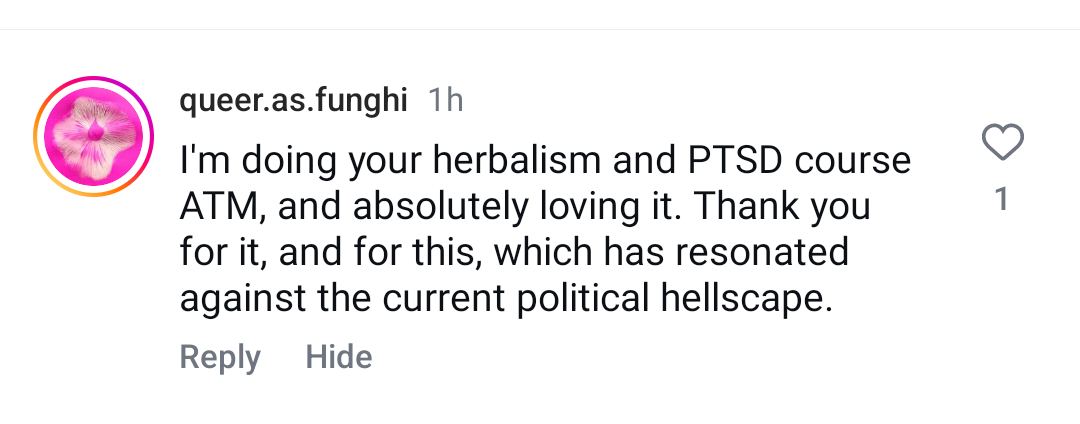
"The Herbalism, PTSD & Traumatic Stress Course has become one of my most treasured resources as a therapist, spirit worker, and student of plant medicine. One of the most valuable aspects of the course is the way in which each module and segment acknowledges and addresses the political dimensions of trauma and intervention. The opening module about defining trauma should be required listening for anyone working with traumatized people and it has influenced and strengthened my work with my clients. This course is easy to follow, thoughtfully organized, and rooted in deep integrity and wisdom. It is also supporting me in my own healing, deepening my connection to my body, to plants, and to the joy of making my own medicine. Thank you, thank you, thank you for this course!"
"I am still working my way through the Herbalism, PTSD, & Traumatic Stress Course and I am so happy it was made accessible at a sliding scale price. Despite being a white cisgender woman, Nicole pays attention to decolonialism and their own privilege while also naming how their own intersections have impacted their work and their study of herbalism.
This course is at times difficult to work through because some of the content related to trauma is very personally impactful, but I am really enjoying it overall and taking my time (a very long time) to work through it.
Grateful this knowledge was shared and not gate kept."
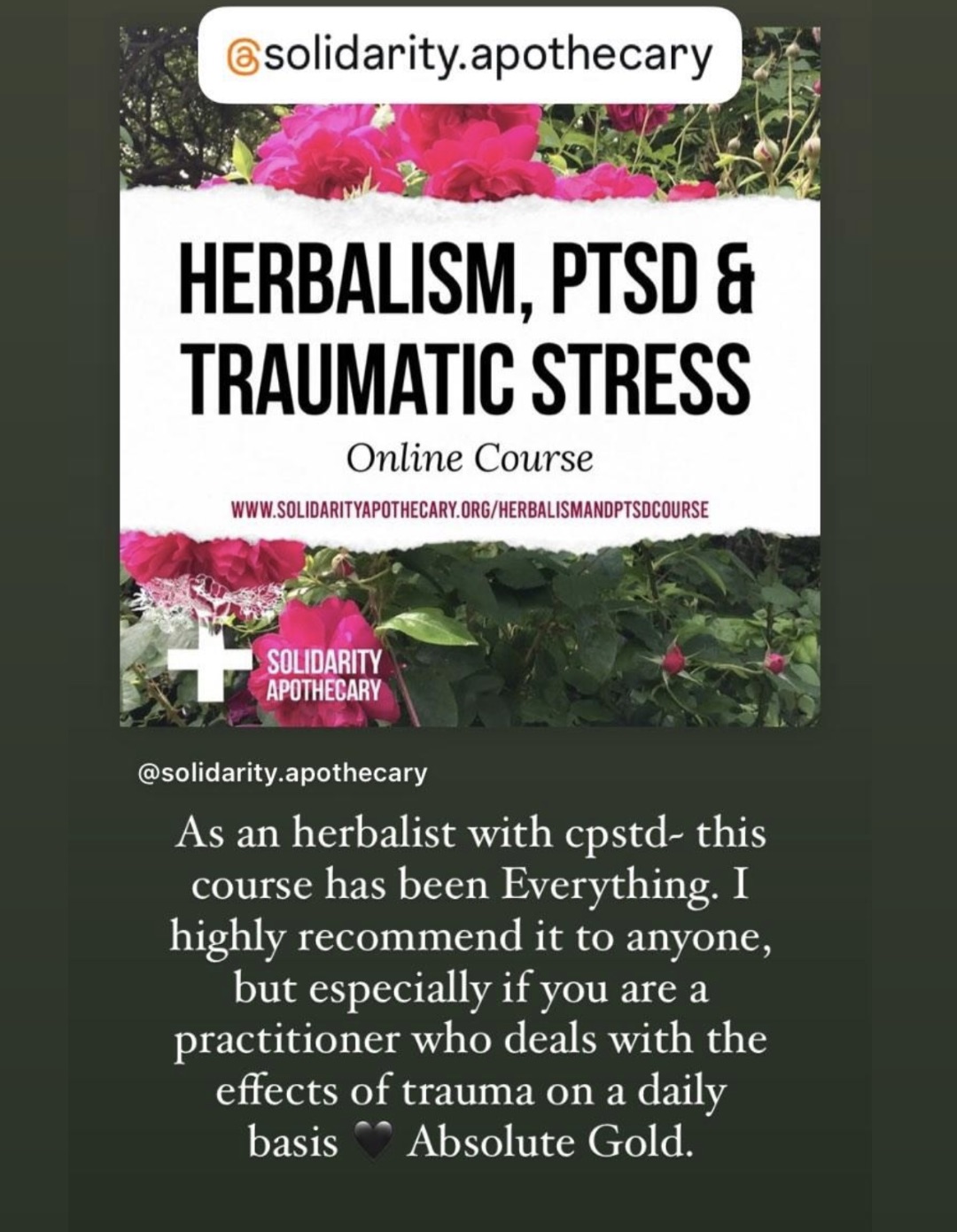
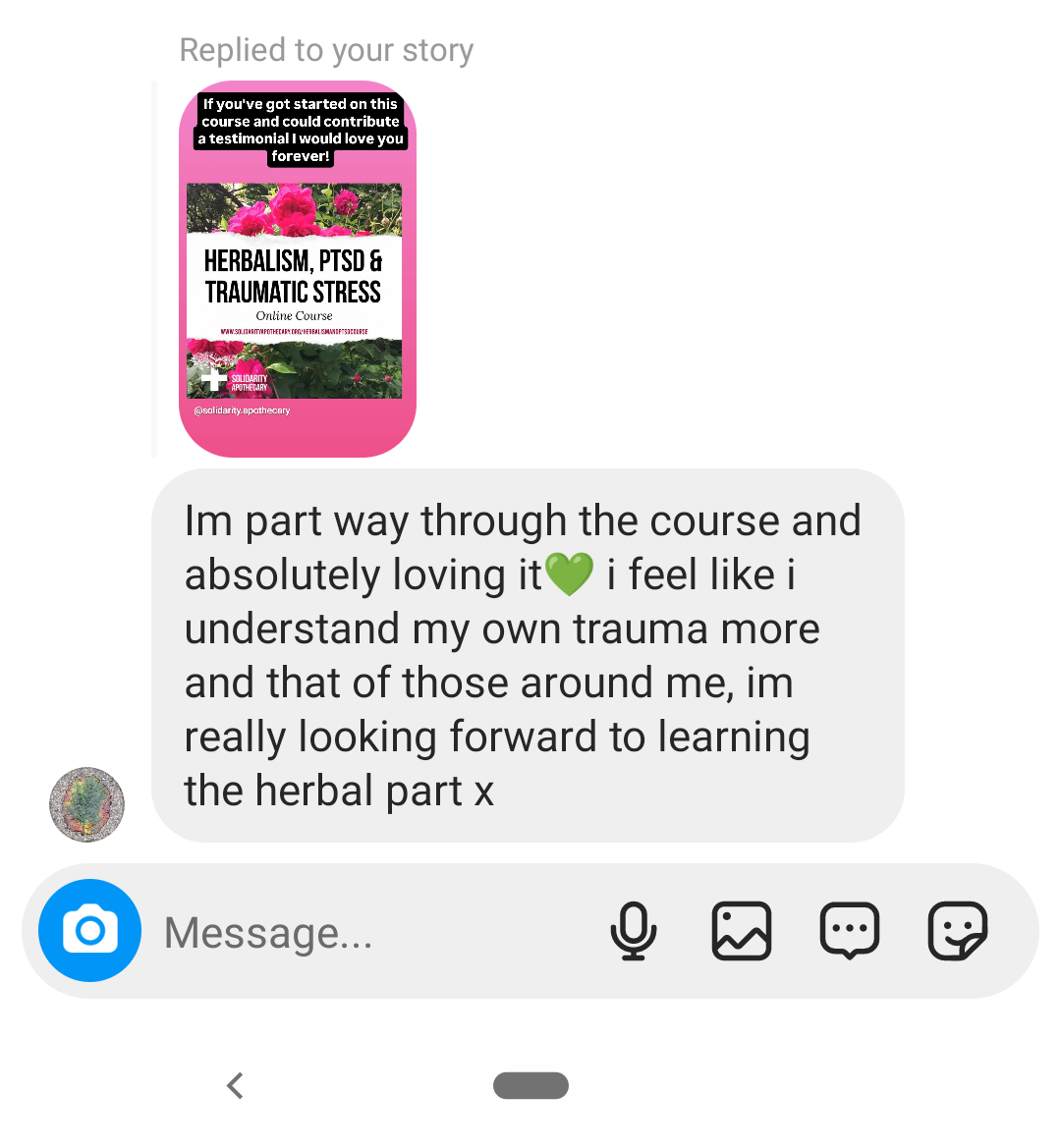
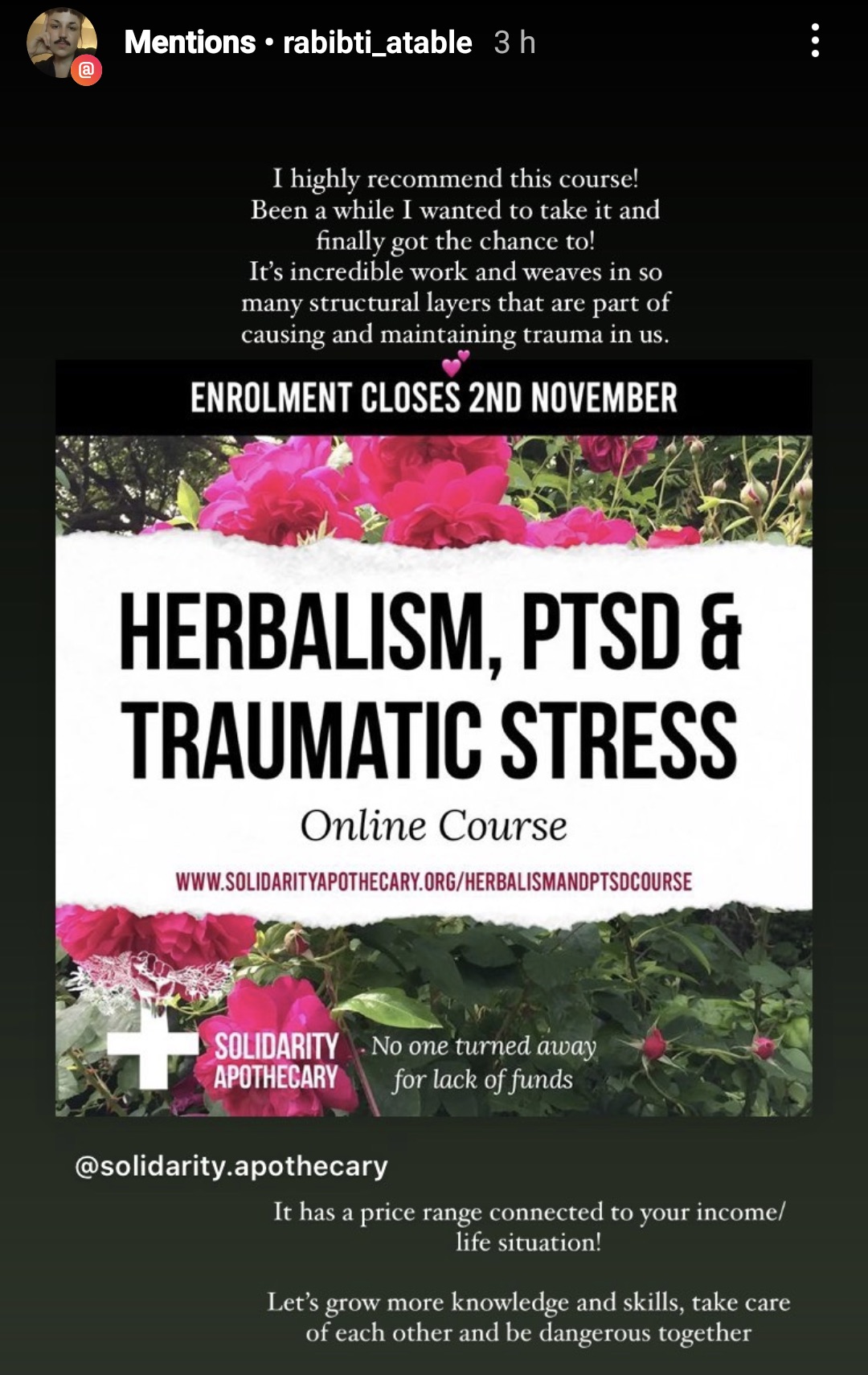
"I have been working my way slowly through this course, I love that I can take my time with it.
So far the course has given me a better understanding of my own trauma and what herbs can be useful or ones that shouldnt be used depending on many factors. I'd recommend this course to anyone who is interested to learn about herbalism. I'm excited to be starting this learning journey here, it's already leading me to enjoy gardening more, helping make herbal care packs, foraging and pretty much anything plant related."
"I came to the course with very minimal practical or theoretical experience of herbalism, but a budding curiosity about forms of practical healing we can do outside of the medical industrial complex. The curiosity felt very tender and precious, and could not have been better supported than by/with the structure offered by Nicole on this course. Her unrelenting insistence that the work of connecting with ourselves and plants is the work of the revolution has been inexpressibly healing. Words cannot do it justice; my world is shifting. I feel so lucky to have been able to begin making medicines with the politicised / politicising contexts offered in this course, it is helping me connect with people I didn't know I could connect with. Deeply deeply grateful."
"Nicole has created such a great combination of a rich evidence based resource that feels spiritually nourishing to engage with, and an accessible form of support that isn't overwhelming. I dip back in often depending on what I need and it's very well suited to helping you build your own practice in a way that's sustainable. It's rare that a web resource feels like it actively encourages closer engagement with your body but the anticapitalist energy of Nicole's work means it facilitates your own process of inquiry and listening that can unfold over time, at your own pace and in your own way. It's a great joy to be able to share in the wisdom of the important work Nicole does."
"I enrolled in the Herbalism, PTSD and Traumatic Stress course and it's been so interesting so far! I work as a social worker and have a background in herbalism already, so I do have a bit of knowledge and was curious about what new things I can learn from it. And I must say, the course is so very well thought through and laid out, I enjoyed every second of the learning and despite my background there were so many new infos and views on the topics that I could take away for myself. I now know better how to help myself with everyday stressors and to support my nervous system, be it through basic things like sleep and nutrition or with the aid of herbs. Can't recommend this course enough for anyone, regardless of their background and amount of knowledge they have about herbalism and trauma!
Plus, I love how considerate and thoughtful Nicole presents these all around tough topics! Shout out to you!"
“This course was a huge support for me in understanding and working through issues around ptsd/chronic and traumatic stress. Ptsd and stress have played a major role in shaping my life recently, as well as having a noticeable impact on those around me in my close community and social/political circles. Having a framework for understanding ptsd that is thoughtful and politically-engaged was so refreshing, and then to have knowledge and skills shared to address these things in some personal and intimate ways was empowering and nicely balanced.
Helpful, thought-provoking, motivating.”
“I was drawn to the Herbalism, PTSD and Traumatic Stress course as I was (and still am!) keen to learn about how I could help friends (and broader community) by gaining a clearer understanding of herbal medicines - how they could support with trauma - and how I could go about making them. I am still working my way through the course, slowly, and haven’t yet made anything.
I really appreciate Nicole’s clear, warm delivery (I listen to the course, then delve into other materials afterwards). I wholeheartedly recommend doing this course, and supporting Solidarity Apothecary’s work.”
"Before this course I was dealing with a lot of shame about my activated symptoms and inability to function at a high level. I put a lot of responsibility on myself alone for how I was being affected by numerous systems of oppression within our society. I also felt as though I was drowning, out of control in my own body, and unable to rely on anyone for support in times of grief or stress.
It has been beyond helpful and healing to hear Nicole break down the contributors to these states of stress in an honest and non-pathologizing way. I now feel like I understand myself and this world better. I feel so comforted that I can turn to herbs for gentle support at any time and feel like I have someone on my side. I have been making many different teas and am learning how to make medicines gradually over time.
Outside of emotional stuff I'm a huge nerd and love geeking out and learning about all the different herbs and ways to make medicine!! It's so cool. I'm so excited to share this knowledge with friends and loved ones, and I would highly recommend the course to anyone seeking knowledge and gentle support."
"It's so clear how much thought has gone into this course, I knew it would be good but its exceeded my expectations. Nicole is not just incredibly knowledgable but has a passionate integrity which is really clear in the course. I really appreciate how accessible it is as someone who fluctuates with energy, focus and stability. I can pick up where I left off or continue to revisit parts if I have a long gap. There is no pressure or time-sensitive demand placed on me which I really value and helps me to learn. Thank you so much Nicole!"
"I have been slowly working my way through the Herbalism for Trauma and PTSD course online and am so grateful for Nicole’s approach and care of the topics, intersections and the real world context in which she teaches.
I signed up for this to support myself and my community and also to learn alongside my practice in soul herbalism.
I have found the course so far to be validating inspiring, accessible and grounded, I really appreciate how being able to read slides and listen to Nicole’s explanations, and how she shares examples, while always giving wider context, further reading and the disclaimer that there is no one answer to any of this work.
Thank you so much for creating such a fierce and compassionate herbalism course!"
"As a trauma-informed queer anarchist one focus of my approach to botanical medicine is through trans* healthcare and general mental health support for my communities. The Herbalism, PTSD, and Traumatic Stress Course feels like it was handcrafted just for folx like me.
The course’s deepdive into the nature of trauma pulls from classic sources and new approaches — emphasising how trauma affects the body and the impact of state violence in its many forms. The suggested resources beyond the core class are incredible.
There is a thorough, yet not overwhelming, exploration of the nervous system that is both ideal for folx new to anatomy/ physiology and a wonderful refresher for those of us who need one.
Nicole has a beautiful, uncompromising, relationship-based approach to working with plants and people that I really resonate with. It's boundlessly refreshing to see Radical Vitalism expressed in such an accessible, anarchist way.
There is an invitation to do deep work here that feels like an essential part of self care/ community care that will continue to have a massive impact on me moving forward."
"The herbalism and PTSD course has really been an eye opening experience for me. Until I started this course, I didn't understand how most of the sources I'd read centred such a western perspective on trauma, and how problematic this is.
It has also been a vital resource for helping me understand the relationship between colonialism and psychiatry, and how current healing modalities do not serve working class people and anti capitalist struggles.
The way she approaches the herbalist aspects of the course, and her wider work, is inspiring and respectful of plants themselves, and the environments they are part of.
Since starting this course I have developed a deeper relationship with plants and my local habitat. I've also begun making my own medicine, and using them as a way of supporting my own health and wellbeing and my friends. I love that this course has an individual self care aspect to it, and offers this as a framework with which to approach herbalism.
I have found other courses to be out of my price range, the fact that Nicole offers this course at such a reduced rate is a gift!
I would encourage anyone who is interested in herbalism and trauma to do this course. It's been an inspiring and informative introduction for me. Thank you Nicole!"
"I enrolled in "Herbalism, PTSD and Traumatic Stress" from Solidarity Apothecary and have been absolutely blown away by this course. As an herbalist who themself has c-ptsd, I found the content to not only be invaluable as a clinician, but it has also been incredibly medicinal personally as well. Nicole has put together the information in such a conscientious way, with clear content warnings, and then so graciously and gently handles some of the most difficult subjects we face as humans with honesty, awareness and compassion. I have deeply appreciated her consistent de-centering and challenging of the traditional western perspectives that have been so loud and persistent in the mental health and wellness "field". Bravo!
The content is well-researched, with meticulous attention paid to siting and crediting sources. I love the variety of perspectives offered, from both their personal experiences and then the thoughts and voices of folks I had not yet had the privilege to know. I am also the biggest fan of sliding scale structures and have found this course to be one of the most accessible I have taken - from pricing, the graphics, right down to Nicole describing the memes and images used and offering places to break and 'catch one's breath'. I am very grateful to have stumbled upon Solidarity Apothecary and this course! Keep up the great work, Nicole - it is so desperately needed in the world! Thank you for being here."
"I am admittedly not all the way through it, but so far I love this course! It is very extensive and thorough and looks at a trauma from a different perspective. I have taken a few trauma informed classes and most just focus on individual trauma, I like how this class touches on shared traumas or collective traumas, looking at it from that lens is important and eye opening to the trauma some of my clients might experience and even trauma I didn't realize I shared. I am so happy I signed up and I know I will be using this information for years to come!"
"I survived trauma in 2005. I was 17 and grew up in a conservative region in Germany. I didn't have access to therapy. Around 10 years later I had some years of therapy, but the person was not trauma informed. I connected with some anti-psychiatry people but I found it too short-sighted to just say abolish psychiatry, as it saved my life twice.
I really liked your course because it helped me to get a progressive and validating perspective on trauma and "post" traumatic stress that helped me shift my view in helpful ways. Also I love the vast amount of rssources!
I also like the practical connection with herbs and herbalism. Unfortunately in Germany all things herbalist have to be scanned thoroughly for (right wing) esoteric connections, so I was glad to find a source for progressive ideas on plants and herbalism.
I really like that you put much effort in making stuff accessible, like having video, audio, transcript etc. I also laughed :) about your readings of the contents of the single herbs, it added some humor, because you were also laughing about yourself (English is my second language, so I couldn't do it any better and don't know the "correct" pronunciation anyway).
I also learned a lot about the prison industry, which was not something I knew a lot about before."
"I’m currently taking your course and just wanted to express how grateful I am that you created it. I have been healing from what I now understand is full-blown PTSD, after leaving a lifetime of cycles of psychological and sexual abuse in various forms of intimate relationships.
I feel like if everyone better understood trauma frameworks and types, as well as how it impacts the mind, body, and spirit, there would be more empathy and solidarity in the world, and more united mobilization against capitalistic, colonial, and supremacist leaders and systems.
What you offer is truly a gift and anecdote to all this implosion, division, and polarization, where abuse is so prolific, constructive dialogue between groups is sparse, and traumatizing others is used as a means of control and domination (sorry I'm super pessimistic atm lol).
Looking forward to continuing learning, integrating, and healing myself and others. Also appreciate all the extra resources/materials to explore as well!
Just wanted to express my deep gratitude."
"Hello, I am in my elder years now and 6 years ago I arrived in a beautiful place and now we have a beautiful garden. I was being drawn to individual plants as I am drawn to people who I would like to be friends with and they supported me through my transition. In the autumn of last year I signed up for this course for the first time. I am loving the learning, the voice and energy and generosity of Nicole Rose and the increasing confidence in medicine making. I don't intend to set up practice but I like sharing the herbs and formulas as I do the vegetables. As I embark on a journey to see my sick dad, rosemary is my ally; as I wander the woods nearby wanting to diminish my ego, dandelion root coffee sets me up well.
I know that our world is increasingly trauma inducing with many more people and environments suffering from PTSD.....this course can only help me to be helpful. With love."


"In the '90s, I was a young animal liberation activist and that's when I first got into herbalism. It was older women environmentalists who introduced me to it. I stumbled upon Nicole's book "Overcoming Burnout" at a time when I really wanted to dive deeper into herbalism. I connected with her personal story and immediately signed up for her workshop. The course is great because it covers a wide range of topics and you can pick and choose what you want to learn. I've recently started a small urban garden, so I really loved the module on harvesting herbs and making medicines."
"I've worked through some of the Herbalism PTSD & traumatic stress course, and plan to come back to it as soon as possible for a more hands-on experience as my situation allows. I think it is so beautiful how accessible this course is, both financially & content wise. As a disabled person I felt truly considered. I began the course when I was mostly bedbound, stuck in a small inaccessible top floor flat, yet still learned so much. The way I connected with plants was transformed when I did occasionally manage to get downstairs to the outside world, I could see all this new potential in our surrounding city streets! The Solidarity Apothecary mission is something I can wholeheartedly support, I can't recommend them highly enough. Herbalism used to feel like something so inaccessible to me, but now I can see how it can be within our reach even when it feels furthest away."
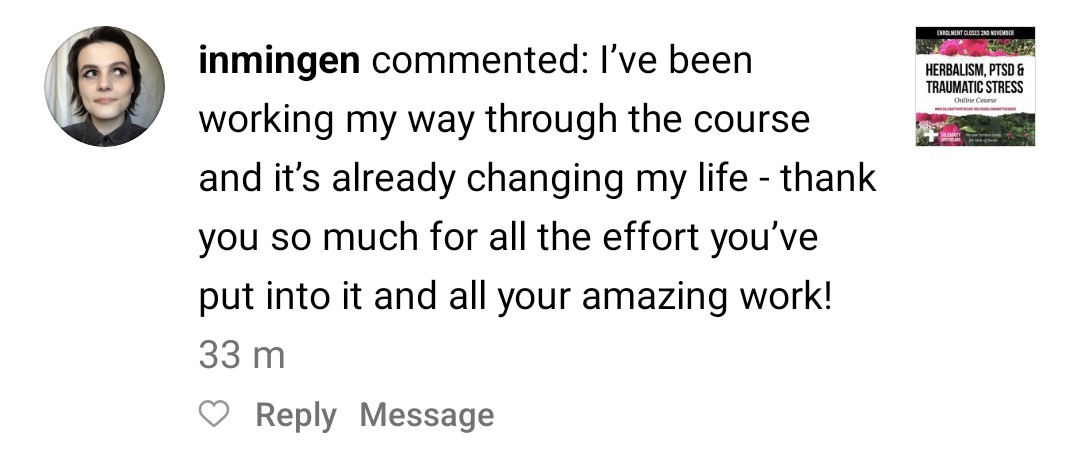
"Beautiful, impactful and insightful - this is important work. So good I’m actually completing it a second time to really take in all the information."
"Why did you sign up to the course? As a way to go deeper into the knowledge of herbalism, but under the perspective of PTSD and trauma. Seemed rooted in reality vs just learning of straight up plant properties in a bubble.
What are you doing differently as a result of the course?
Eating more fruits and veggies! The slide of how plants may have properties of nutrients we have yet to understand stuck with me so I've been integrating it into my diet more.
How are you practicing herbalism now?
Taking it slower than ever. Sticking to one main character plant a month and working with it in different ways to understand its effect on my body.
Are there any particular plants you've connected with?
Milk thistle, dandelion, and sarsaparilla are my mains at the moment.
How was it different from other courses you've taken or other things you've tried? Different from some books I've read which just plainly state the plant's properties. Which can be nice in some cases, but it's also important to acknowledge the difference of effects with each person. Not only the biological difference, but what they have emotionally been through. This course really dives into that and gives perspective that is far from cookie cutter."
"The herbalism for PTSD course by Nicole and Solidarity Apothecary has absolutely changed my life for the better and shifted my perspective on so much. I’d started herbalism studies more broadly about nine months before enrolling and the course was very accessible whilst still containing so much valuable information - saying that I don’t think it would be strictly necessary to have prior herbalism knowledge. Nicole has a very clear but personable presentation style and the course slides are well laid out. I was thrilled by the amount of references and further resources provided. I could not recommend this course more highly, especially for anyone with experience of trauma or anyone wanting to support those who have (which at this point I think is probably most of us)."
"I love everything Solidarity Apothecary does, from Nicole’s books to her solidarity campaigns for people in prison. So naturally the Herbalism and trauma course is well written, clear, full of knowledge and expertise but as always led by values and deep passion for community and planet."
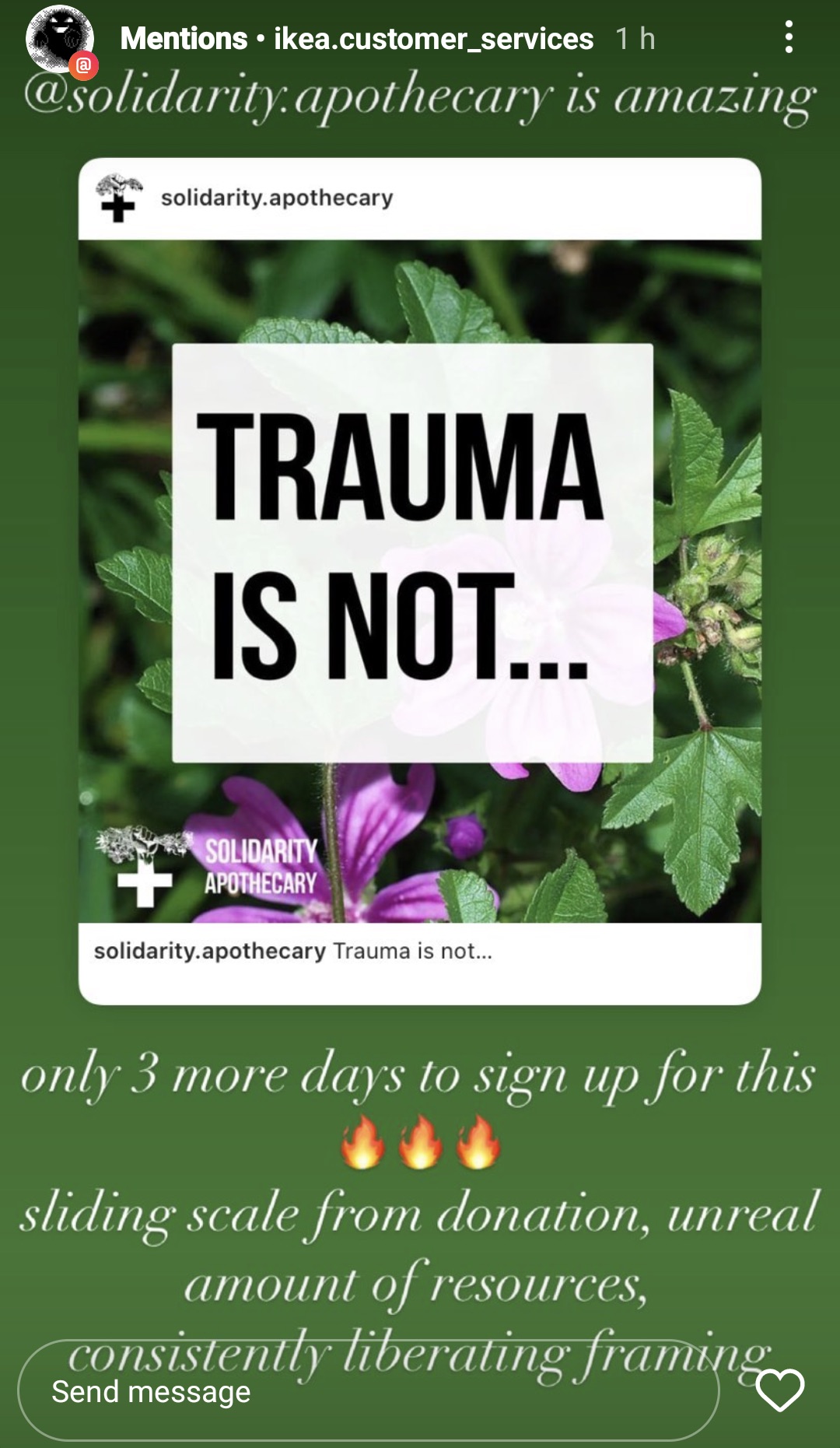
"This course was able to thread something I’ve been looking for in my early herbalism studies — a solid base for getting footwork, grounded in a radical understanding beyond some white washed woo-woo. As someone who also includes more spiritual connectivity in their practice, this course was also a beautiful approach to connecting intimately and cultivating relationships with the herbs themselves. Have already recommended it to several of my friends!"
"I was called to enroll in Nicole’s Herbalism, PTSD and Traumatic Stress course. I have been formally training as an herbalist here in the states. As someone who suffers from PTSD and feels the impact that trauma has on our multifaceted beings, I found this course to be helpful. I love getting perspectives of other herbalists who have very different lived experiences of my own. Nicole’s work with those who survive state violence is inspiring and provides a perspective I encourage everyone to engage with. I love that Nicole provides us with many studies and is conscious of their collection."
"I have found this course to be such a supportive companion on my journey with the plants and in working with communities. It's not only guiding a deeply personal practice and source of wellness and resilience... The course has also deepened my understanding in some really key ways around restoring collectivity to our understandings of mental health and trauma, and how we create and approach practices of wellness and resilience in meaningful and sustainable ways - beyond the individual. This course is so rare in its bringing together of the personal, the spiritual, the political, the systemic and the mysterious. This is a radical kind of herbalism which feels ever more vital and I'm so grateful to receive this wisdom and inspiration."
"I was so thrilled to find and take the Herbalism, PTSD and Traumatic Stress course last year. It is so important in these difficult times full of trauma to know how to use plants to help heal, soothe, and alleviate these stressors. The course was laid out well, easy to follow, and fantastic information. I highly recommend it to all herbalists and plant minded friends. Thank you!"
